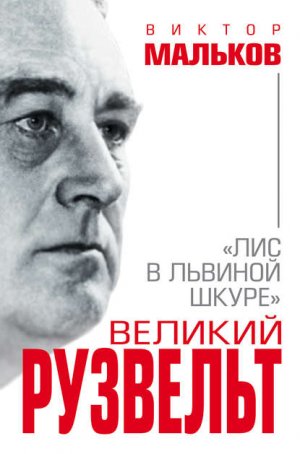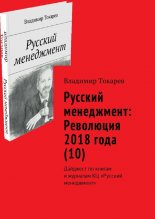Notice: Undefined variable: contentRead in /var/www/www-root/data/www/knizh.ru/funcs.php on line 681
Notice: Undefined variable: row in /var/www/www-root/data/www/knizh.ru/funcs.php on line 719
Notice: Trying to access array offset on value of type null in /var/www/www-root/data/www/knizh.ru/funcs.php on line 719
ïŋ―ïŋ―ïŋ―ïŋ―ïŋ―ïŋ―ïŋ― ïŋ―ïŋ―ïŋ―ïŋ―ïŋ―ïŋ―ïŋ―ïŋ― ïŋ―ïŋ―ïŋ―ïŋ―ïŋ―ïŋ―ïŋ― ïŋ―ïŋ―ïŋ―ïŋ―ïŋ―ïŋ―

{24} LC.ïŋ―Thomas J.ïŋ―Walsh Papers. Box 183. Frederick Allen to Walsh. December 30, 1931.
{25} Lash J. P.ïŋ―Eleonor and Franklin. The Story of Their Relationship. N. Y., 1973. P. 450.
{26} The Public Papers of Governor Franklin D.ïŋ―Roosevelt, 1929ïŋ―1932, 4ïŋ―vols. Albany, 1930ïŋ―1939; 1931ïŋ―vol. P. 734, 740ïŋ―741.
{27} The Public Papers and Addresses of Franklin D.ïŋ―Roosevelt, Samuel I.ïŋ―Rosenman (ed.). 13ïŋ―vols. N.Y., 1938ïŋ―1950. Vol. 1. P. 458.
{28} Ibid. P. 646.
{29} McElvaine R. S.ïŋ―Op. cit. P. 125.
{30} ïŋ―ïŋ―ïŋ―ïŋ―ïŋ―ïŋ― ïŋ―ïŋ―ïŋ―ïŋ―ïŋ―ïŋ―ïŋ― ïŋ―ïŋ―ïŋ― ïŋ― ïŋ―ïŋ―ïŋ―ïŋ―ïŋ―ïŋ―ïŋ― 1931ïŋ―ïŋ―. ïŋ―ïŋ―ïŋ―ïŋ―ïŋ― ïŋ― ïŋ―ïŋ―ïŋ―ïŋ―ïŋ―ïŋ―ïŋ― ïŋ―ïŋ―ïŋ―ïŋ―ïŋ―ïŋ―ïŋ―ïŋ―: ïŋ―ïŋ―ïŋ―ïŋ―ïŋ―ïŋ―ïŋ― ïŋ―ïŋ―ïŋ―ïŋ―ïŋ― ïŋ―ïŋ―ïŋ―ïŋ―ïŋ―ïŋ― ïŋ―ïŋ―ïŋ―ïŋ―ïŋ―ïŋ―, ïŋ― ïŋ―ïŋ―ïŋ―ïŋ―ïŋ―ïŋ―: ïŋ―ïŋ―ïŋ―ïŋ―ïŋ―ïŋ―ïŋ―ïŋ― ïŋ―ïŋ― ïŋ―ïŋ―ïŋ―ïŋ―ïŋ―ïŋ―ïŋ―ïŋ―ïŋ―ïŋ―ïŋ―ïŋ―ïŋ―ïŋ― ïŋ―ïŋ―ïŋ―ïŋ―ïŋ―ïŋ―ïŋ―ïŋ―ïŋ―ïŋ―ïŋ―ïŋ―ïŋ―ïŋ―ïŋ―ïŋ―ïŋ― ïŋ―ïŋ―ïŋ―ïŋ―ïŋ―ïŋ―ïŋ―ïŋ― ïŋ―ïŋ―ïŋ―ïŋ―ïŋ―ïŋ―ïŋ―ïŋ―ïŋ― ïŋ―ïŋ―ïŋ―ïŋ― ïŋ―ïŋ―ïŋ―ïŋ―ïŋ―ïŋ―ïŋ―ïŋ―ïŋ―ïŋ―ïŋ―ïŋ―ïŋ―ïŋ―ïŋ―ïŋ―, ïŋ―ïŋ―ïŋ―ïŋ― ïŋ―ïŋ―ïŋ― ïŋ―ïŋ―ïŋ―ïŋ―ïŋ―ïŋ―ïŋ―ïŋ―ïŋ―ïŋ―ïŋ―ïŋ― ïŋ―ïŋ―ïŋ―ïŋ―ïŋ―ïŋ―ïŋ―ïŋ―ïŋ― ïŋ―ïŋ―-ïŋ―ïŋ― ïŋ―ïŋ―ïŋ―ïŋ―ïŋ―ïŋ―ïŋ―ïŋ―ïŋ― ïŋ―ïŋ―ïŋ―ïŋ―ïŋ―ïŋ―ïŋ―ïŋ―ïŋ―ïŋ―ïŋ―ïŋ― ïŋ―ïŋ― ïŋ―ïŋ―ïŋ―ïŋ―ïŋ― ïŋ―ïŋ―ïŋ―ïŋ―ïŋ―ïŋ― ïŋ― ïŋ―ïŋ―ïŋ―ïŋ―ïŋ―ïŋ―ïŋ―ïŋ―ïŋ― ïŋ―ïŋ―ïŋ―ïŋ―ïŋ―ïŋ―ïŋ― ïŋ―ïŋ―ïŋ―ïŋ―ïŋ―ïŋ―ïŋ―ïŋ―ïŋ― ïŋ―ïŋ―ïŋ―ïŋ―ïŋ― ïŋ―ïŋ― ïŋ―ïŋ―ïŋ―ïŋ―ïŋ―ïŋ― (LC. F.ïŋ―Frankfurter Papers. Box 78. W.ïŋ―Lippman to Frankfurter. October 22, 1931).
{31} ïŋ―.ïŋ―ïŋ―ïŋ―ïŋ―ïŋ―ïŋ―ïŋ―ïŋ― ïŋ―ïŋ―ïŋ― ïŋ― ïŋ―ïŋ―ïŋ―ïŋ―ïŋ―ïŋ―ïŋ― 1931ïŋ―ïŋ―. ïŋ―ïŋ―ïŋ―ïŋ―ïŋ―, ïŋ―ïŋ―ïŋ― ïŋ―ïŋ―ïŋ―ïŋ―ïŋ―ïŋ―ïŋ―ïŋ―ïŋ―ïŋ―ïŋ―ïŋ―ïŋ―ïŋ―ïŋ― ïŋ―ïŋ―ïŋ―ïŋ―ïŋ―ïŋ― ïŋ―ïŋ― ïŋ―ïŋ―ïŋ―ïŋ―ïŋ―ïŋ―ïŋ―ïŋ― ïŋ―ïŋ― ïŋ―ïŋ―ïŋ―ïŋ―ïŋ―ïŋ―ïŋ―ïŋ―ïŋ―ïŋ―ïŋ―ïŋ―ïŋ―, ïŋ―ïŋ― ïŋ―ïŋ―ïŋ―ïŋ―ïŋ―ïŋ―ïŋ―ïŋ―ïŋ―ïŋ―ïŋ―ïŋ―, ïŋ―ïŋ― ïŋ―ïŋ―ïŋ―ïŋ―ïŋ―ïŋ―ïŋ―ïŋ―ïŋ―ïŋ― (LC. F.ïŋ―Frankfurter Papers. Box 78. W.ïŋ―Lippman to Frankfurter. February 5, 1931).
{32} Rosen E. A.ïŋ―Hoover, Roosevelt and the Brains Trust: From Depression to New Deal. N.Y., 1977. P. 141.
{33} ïŋ―ïŋ―ïŋ―ïŋ―ïŋ― ïŋ―ïŋ―ïŋ―ïŋ―ïŋ―ïŋ― ïŋ―ïŋ―ïŋ―ïŋ―ïŋ―ïŋ―ïŋ―ïŋ― ïŋ―ïŋ― ïŋ―ïŋ―ïŋ―ïŋ―ïŋ―ïŋ―ïŋ― ïŋ―ïŋ― ïŋ―ïŋ―ïŋ―ïŋ―ïŋ―ïŋ―ïŋ―ïŋ―ïŋ―ïŋ― ïŋ―ïŋ―ïŋ―ïŋ―ïŋ― ïŋ―ïŋ―ïŋ―ïŋ―ïŋ―ïŋ―ïŋ―ïŋ―ïŋ―ïŋ― ïŋ―ïŋ― ïŋ―ïŋ―ïŋ―ïŋ―ïŋ― ïŋ―ïŋ―ïŋ―ïŋ―ïŋ―ïŋ―ïŋ―ïŋ―ïŋ―ïŋ― ïŋ―ïŋ―ïŋ―.ïŋ―ïŋ―ïŋ― ïŋ―ïŋ―ïŋ― ïŋ―ïŋ―ïŋ―ïŋ―ïŋ―ïŋ―ïŋ― ïŋ― ïŋ―ïŋ―ïŋ―ïŋ―ïŋ―ïŋ― ïŋ―ïŋ―ïŋ― ïŋ―ïŋ―ïŋ―ïŋ―ïŋ―ïŋ―ïŋ―ïŋ― ïŋ― ïŋ―ïŋ―ïŋ―ïŋ―ïŋ―ïŋ―ïŋ― ïŋ―ïŋ―ïŋ―ïŋ―ïŋ―ïŋ―ïŋ―ïŋ―ïŋ―ïŋ―ïŋ―ïŋ―ïŋ―ïŋ―ïŋ―, ïŋ―ïŋ―ïŋ―ïŋ―, ïŋ―ïŋ―ïŋ― ïŋ―ïŋ―ïŋ―ïŋ―ïŋ―ïŋ―ïŋ―ïŋ― ïŋ―ïŋ―ïŋ―ïŋ―ïŋ―ïŋ― ïŋ―ïŋ―ïŋ―ïŋ―ïŋ―ïŋ―ïŋ― ïŋ―ïŋ―ïŋ―ïŋ―ïŋ―ïŋ―ïŋ―ïŋ―ïŋ―ïŋ―ïŋ―ïŋ―ïŋ―ïŋ―ïŋ―, ïŋ―ïŋ―ïŋ―ïŋ―ïŋ―ïŋ―ïŋ―ïŋ―ïŋ―ïŋ―ïŋ― ïŋ―ïŋ―ïŋ―ïŋ―ïŋ―ïŋ―ïŋ―ïŋ―ïŋ―ïŋ― ïŋ―ïŋ―ïŋ―ïŋ―ïŋ―ïŋ―ïŋ― ïŋ―ïŋ―ïŋ―ïŋ―ïŋ― ïŋ―ïŋ―ïŋ―ïŋ―ïŋ― ïŋ―ïŋ―ïŋ―ïŋ―ïŋ―ïŋ―ïŋ―ïŋ―ïŋ―ïŋ―ïŋ―ïŋ―ïŋ― ïŋ―ïŋ―ïŋ―ïŋ―ïŋ―ïŋ―ïŋ―ïŋ―, ïŋ―ïŋ―ïŋ―ïŋ―ïŋ― ïŋ―ïŋ― ïŋ―ïŋ―ïŋ―ïŋ―ïŋ―ïŋ―ïŋ―ïŋ― ïŋ―ïŋ―ïŋ―ïŋ―ïŋ―ïŋ―ïŋ―ïŋ― ïŋ―ïŋ―ïŋ―ïŋ― (Leff ïŋ―.ïŋ―.ïŋ―The Limits of Symbolic Reform: The New Deal and Taxation. 1933ïŋ―1939. Cambr., 1984).
{34} Schlesinger A.M.,ïŋ―Jr. The Crisis of the Old Order, 1919ïŋ―1933. Melbourne ïŋ― L.ïŋ―ïŋ― Toronto, 1957. P. 445.
{35} Ibid. P. 432.
{36} LC. F.ïŋ―Frankfurter Papers. Box 78. W.ïŋ―Lippman to Frankfurter. September 14, 1932.
{37} ïŋ―ïŋ―ïŋ―. ïŋ―ïŋ―: Lash J. P.ïŋ―Op. cit. P. 462.
{38} McElvaine R. S.ïŋ―Op. cit. P. 133.
{39} Ibid. P. 134.
{40} ïŋ―ïŋ―.: ïŋ―ïŋ―ïŋ―ïŋ― ïŋ―.ïŋ―ïŋ―ïŋ―ïŋ―ïŋ―ïŋ―ïŋ―ïŋ―ïŋ―ïŋ―ïŋ―ïŋ― ïŋ―ïŋ―ïŋ―ïŋ―ïŋ―ïŋ―ïŋ―ïŋ― ïŋ― ïŋ―ïŋ―ïŋ―ïŋ―ïŋ―ïŋ―ïŋ―. ïŋ―., 1993. ïŋ―. 239.
{41} Hurd Ch. When the New Deal was Young and Gay. N.Y., 1965. P. 32.
{42} The Public Papers and Addresses of Franklin D.ïŋ―Roosevelt. Vol. II. P.ïŋ―11ïŋ―16.
{43} ïŋ―ïŋ―.: Schlesinger A.M.,ïŋ―Jr. The Coming of the New Deal. L.ïŋ―ïŋ― Melbourne ïŋ― Toronto, 1960. P. 5.
{44} New York Public Library. N.ïŋ―Thomas Papers. Box 3. Ernest Gruening to Thomas. March 9, 1933.
{45} Moley R.ïŋ―After Seven Years: A Political Analysis of the New Deal. Lincoln, 1971. P. 155.
{46} ïŋ―ïŋ―.: Blum J. M.ïŋ―From the Morgenthau Diaries. 3ïŋ―vols. Boston, 1976. Vol. 1. P.ïŋ―45.
{47} Fite G.C.ïŋ―Farmer Opinion and the Agricultural Adjustment Act, 1933 // Mississippi Valley Historical Review. March, 1962. P. 673.
{48} ïŋ―ïŋ―.: Rauch ïŋ―.ïŋ―The History of the New Deal, 1933ïŋ―1938. N. Y., 1944. P. 68; Kirkendall R.S.ïŋ―The New Deal and Agriculture // The New Deal. The National Level. P. 83ïŋ―109.
{49} ïŋ―ïŋ―ïŋ―ïŋ―ïŋ―ïŋ―ïŋ―ïŋ―ïŋ― ïŋ―ïŋ―ïŋ―ïŋ―ïŋ―ïŋ―ïŋ― ïŋ―ïŋ―ïŋ―ïŋ―ïŋ―ïŋ―, ïŋ―ïŋ―ïŋ―ïŋ―ïŋ―ïŋ―ïŋ―ïŋ―ïŋ―ïŋ―ïŋ―ïŋ―ïŋ― ïŋ―ïŋ― ïŋ―ïŋ―ïŋ―ïŋ―ïŋ― ïŋ―ïŋ―ïŋ―ïŋ―ïŋ―ïŋ―ïŋ―ïŋ―ïŋ― ïŋ―ïŋ―ïŋ―ïŋ―ïŋ―ïŋ―ïŋ―ïŋ―ïŋ―ïŋ―ïŋ―ïŋ―ïŋ―ïŋ―, ïŋ―ïŋ―ïŋ―ïŋ―ïŋ― ïŋ― ïŋ―ïŋ―ïŋ―ïŋ―ïŋ―ïŋ―ïŋ―ïŋ― ïŋ―ïŋ―ïŋ―ïŋ―ïŋ―ïŋ―ïŋ―ïŋ―ïŋ―: ïŋ―ïŋ―ïŋ―ïŋ― ïŋ―ïŋ―ïŋ―ïŋ―ïŋ―ïŋ―, ïŋ―ïŋ―ïŋ― ïŋ―ïŋ―ïŋ―ïŋ―ïŋ―ïŋ―ïŋ―ïŋ―ïŋ― ïŋ―ïŋ―ïŋ―ïŋ―ïŋ―ïŋ―ïŋ― ïŋ―ïŋ―ïŋ―ïŋ―ïŋ―ïŋ―ïŋ―ïŋ― ïŋ―ïŋ―ïŋ―ïŋ―ïŋ―ïŋ―ïŋ―ïŋ―ïŋ―ïŋ―ïŋ― ïŋ―ïŋ―ïŋ―ïŋ― ïŋ―ïŋ―ïŋ―ïŋ―ïŋ―ïŋ― ïŋ― ïŋ―ïŋ―ïŋ― ïŋ― ïŋ―ïŋ―ïŋ―ïŋ―ïŋ―ïŋ― ïŋ―ïŋ―ïŋ―ïŋ―ïŋ―ïŋ― ïŋ―ïŋ― ïŋ―ïŋ―ïŋ―ïŋ―ïŋ―ïŋ― ïŋ―ïŋ―ïŋ―ïŋ―ïŋ―ïŋ― ïŋ―ïŋ―ïŋ― ïŋ―ïŋ―ïŋ―ïŋ―ïŋ―ïŋ―ïŋ―ïŋ―ïŋ― ïŋ― ïŋ―ïŋ―ïŋ―ïŋ―ïŋ―ïŋ―ïŋ―ïŋ―ïŋ―ïŋ― ïŋ―ïŋ―ïŋ―ïŋ― ïŋ―ïŋ―ïŋ―ïŋ―ïŋ―ïŋ―, ïŋ―ïŋ―ïŋ―ïŋ―ïŋ― ïŋ― ïŋ―ïŋ―ïŋ―ïŋ―ïŋ―ïŋ―ïŋ― ïŋ―ïŋ―ïŋ―ïŋ―ïŋ―ïŋ― ïŋ―ïŋ―ïŋ―ïŋ―ïŋ―ïŋ―ïŋ―ïŋ―. ïŋ―ïŋ―ïŋ― ïŋ―ïŋ―ïŋ―ïŋ―ïŋ―ïŋ―ïŋ―ïŋ―ïŋ― ïŋ―ïŋ―ïŋ―ïŋ―ïŋ―ïŋ―ïŋ―ïŋ―ïŋ―ïŋ―ïŋ― ïŋ―ïŋ―ïŋ―, ïŋ―ïŋ―ïŋ― ïŋ―ïŋ―ïŋ― ïŋ―ïŋ―ïŋ―ïŋ―ïŋ―ïŋ―ïŋ―ïŋ― ïŋ― ïŋ―ïŋ―ïŋ―ïŋ―ïŋ―ïŋ―ïŋ―ïŋ―ïŋ―ïŋ―ïŋ―ïŋ―ïŋ― ïŋ―ïŋ―ïŋ―ïŋ―ïŋ― ïŋ―ïŋ―ïŋ―ïŋ―ïŋ―ïŋ―ïŋ―ïŋ― ïŋ―ïŋ―ïŋ―ïŋ―ïŋ―ïŋ―ïŋ―ïŋ―ïŋ―ïŋ―ïŋ―ïŋ― ïŋ―ïŋ―ïŋ―ïŋ―ïŋ―ïŋ―ïŋ―ïŋ―ïŋ―ïŋ―, ïŋ―ïŋ―ïŋ―ïŋ―ïŋ―ïŋ―ïŋ―ïŋ―ïŋ―ïŋ―ïŋ― ïŋ―ïŋ―ïŋ― ïŋ―ïŋ―ïŋ―ïŋ― ïŋ―ïŋ―ïŋ―ïŋ―ïŋ―ïŋ―ïŋ―ïŋ―, ïŋ―ïŋ― ïŋ―ïŋ―ïŋ―ïŋ―ïŋ― ïŋ―ïŋ―ïŋ―ïŋ―ïŋ― ïŋ―ïŋ― ïŋ―ïŋ―ïŋ―ïŋ―ïŋ―ïŋ―ïŋ―ïŋ― ïŋ―ïŋ―ïŋ―ïŋ―ïŋ―ïŋ―ïŋ―ïŋ― ïŋ―ïŋ―ïŋ―ïŋ―ïŋ―ïŋ―ïŋ―ïŋ―ïŋ― ïŋ―ïŋ―ïŋ―ïŋ―ïŋ―ïŋ―ïŋ―ïŋ― ïŋ―ïŋ―ïŋ―ïŋ―ïŋ―ïŋ―ïŋ―ïŋ―ïŋ―ïŋ―ïŋ―ïŋ―ïŋ―ïŋ― ïŋ―ïŋ―ïŋ―ïŋ―ïŋ―ïŋ―ïŋ―ïŋ―, ïŋ―ïŋ―ïŋ―ïŋ―ïŋ―ïŋ―ïŋ―ïŋ―ïŋ―ïŋ―ïŋ―ïŋ― ïŋ―ïŋ―ïŋ―ïŋ―ïŋ―ïŋ―ïŋ―ïŋ―ïŋ―ïŋ―ïŋ― ïŋ―ïŋ―ïŋ―ïŋ―ïŋ―ïŋ―ïŋ―ïŋ―ïŋ― ïŋ― ïŋ―ïŋ―ïŋ―ïŋ―ïŋ― ïŋ―ïŋ―ïŋ―ïŋ―ïŋ―ïŋ―ïŋ―ïŋ―ïŋ―ïŋ―ïŋ―ïŋ― ïŋ―ïŋ―ïŋ―ïŋ―ïŋ―ïŋ―ïŋ―ïŋ―ïŋ―ïŋ―ïŋ―ïŋ― ïŋ―ïŋ―ïŋ―ïŋ―ïŋ―ïŋ―ïŋ―ïŋ―ïŋ―ïŋ―ïŋ―ïŋ―ïŋ― ïŋ― ïŋ―ïŋ―ïŋ―ïŋ―ïŋ―ïŋ―ïŋ―ïŋ―ïŋ― ïŋ―ïŋ―ïŋ―ïŋ―ïŋ―ïŋ―ïŋ―î ŧ (WSHSL. R.ïŋ―Robins Papers. Box 25. Robins to (ïŋ―ïŋ―ïŋ―ïŋ―ïŋ―ïŋ―ïŋ― ïŋ―ïŋ―ïŋ―ïŋ―ïŋ―ïŋ―ïŋ―ïŋ― ïŋ―ïŋ―ïŋ―ïŋ―ïŋ―ïŋ―ïŋ―ïŋ―ïŋ―ïŋ―ïŋ―ïŋ―). March 17, 1933).
{50} ïŋ―ïŋ―.: Hawley ïŋ―.W.ïŋ―The New Deal and the Problem of Monopoly. A Study in Economic Ambivalence. Princeton, 1966. P. 325.
{51} Ibid. P. 19.
{52} Hallgren M.A.ïŋ―The Gay Reformer. N. Y., 1935. P. 171.
{53} Hawley B.W.ïŋ―Op. cit. P. 19.
{54} ïŋ―ïŋ―.: New Deal Mosaic. Ed. by L. G.ïŋ―Selingman, E.E.ïŋ―Cornwell. Eugene, 1965. P.ïŋ―274.
{55} Schlesinger ïŋ―.ïŋ―.,ïŋ―Jr. The Coming of the New Deal. P. 257.
{56} ïŋ―ïŋ―ïŋ―ïŋ―ïŋ―ïŋ― ïŋ―.ïŋ―ïŋ―ïŋ―ïŋ―ïŋ―ïŋ―ïŋ―ïŋ―ïŋ― ïŋ― ïŋ―ïŋ―ïŋ―ïŋ―ïŋ―ïŋ―ïŋ―. ïŋ―ïŋ―ïŋ―ïŋ―ïŋ―ïŋ―ïŋ― ïŋ―ïŋ―ïŋ―ïŋ―ïŋ―ïŋ―ïŋ―ïŋ―. ïŋ―. 1. ïŋ―., 1958. ïŋ―. 130.
{57} ïŋ―ïŋ―ïŋ― ïŋ―ïŋ―. ïŋ―. 123.
{58} New Republic. January 1, 1936. ïŋ―. 211.
{59} Ibid. April 10, 1935. ïŋ―. 235.
{60} The New Dealers. Byïŋ―Unofficial Observer. P. 181.
{61} The New Deal. The National Level. Ed. by J.ïŋ―Braeman, R.H.ïŋ―Bremner, D.ïŋ―Brody. Vol. 1. Columbus, 1975. Pïŋ―219.
{62} Schlesinger A.M.,ïŋ―Jr. The Politics of Upheaval. Boston, 1960. P. 352.
{63} FDRL. L.ïŋ―Hickok Papers. Box 11. Hickok to G.ïŋ―Hopkins. August 7ïŋ―12, 1933.
{64} ïŋ―ïŋ―ïŋ―. ïŋ―ïŋ―: ïŋ―ïŋ―ïŋ―ïŋ―ïŋ―ïŋ―ïŋ―ïŋ―ïŋ―ïŋ―ïŋ―ïŋ― ïŋ―ïŋ―ïŋ―ïŋ―ïŋ―ïŋ―, 11ïŋ―ïŋ―ïŋ―ïŋ―ïŋ―ïŋ―ïŋ― 1990ïŋ―ïŋ―. ïŋ―. 15.
{65} Ward G.C. A First-Class Temperament. The Emergence of Franklin Roosevelt. N.Y., 1989. ïŋ―.ïŋ―ïŋ―ïŋ―.
{66} Tugwell R.G.ïŋ―In Search of Roosevelt. Cambridge, Mass., 1972. P. 298.
{67} Word G.C.ïŋ―Op. cit. P. 448.
{68} Ibid. P. 454.
{69} Ibid. P. 522.
{70} Lash J.P.ïŋ―Eleanor and Franklin. The Story of Their Relationship, Based on Eleanor Roosevelt Private Papers. N.Y., 1971. P. 390ïŋ―391.
{71} New York Times, December 30, 1928.
{72} Rollins A.B., Jr. Roosevelt and Howe. N.Y., 1962. P. 272, 273.
{73} LC. F.ïŋ―Frankfurter Papers. Box 78. Frankfurter to W.ïŋ―Lippman. October 23. 1932.
{74} ïŋ―ïŋ―ïŋ―ïŋ―ïŋ― ïŋ―.ïŋ―ïŋ―ïŋ―ïŋ―ïŋ―ïŋ―ïŋ―ïŋ―ïŋ―ïŋ―. ïŋ―ïŋ―ïŋ―ïŋ―ïŋ―ïŋ― ïŋ―ïŋ―ïŋ―ïŋ―ïŋ―ïŋ―ïŋ―ïŋ―ïŋ―ïŋ―ïŋ― ïŋ―ïŋ―ïŋ―ïŋ―ïŋ―ïŋ―ïŋ―ïŋ―. ïŋ―., 1999. ïŋ―. 149.
{75} ïŋ―ïŋ―.: ïŋ―ïŋ―ïŋ―ïŋ― ïŋ―.ïŋ―ïŋ―ïŋ―ïŋ―ïŋ―ïŋ―ïŋ―ïŋ―ïŋ―ïŋ―ïŋ―ïŋ― ïŋ―ïŋ―ïŋ―ïŋ―ïŋ―ïŋ―ïŋ―ïŋ― ïŋ― ïŋ―ïŋ―ïŋ―ïŋ―ïŋ―ïŋ―ïŋ―. ïŋ―. 237.
{76} ïŋ―ïŋ―.: Leuchtenburg W.E.ïŋ―In the Shadow of FDR.ïŋ―From Harry Truman toïŋ―Ronald Reagan. Ithaca and London, 1985. P. 152, 206, 213.
{77} ïŋ―ïŋ―ïŋ―. ïŋ―ïŋ―: The New Deal. The National Level. P. 170.
ïŋ―ïŋ―ïŋ―ïŋ―ïŋ― III
{1} The New Deal. The National Level. P. 123. ïŋ―ïŋ―ïŋ―ïŋ―ïŋ―ïŋ―ïŋ―, ïŋ―ïŋ―ïŋ― ïŋ―ïŋ―ïŋ―ïŋ―ïŋ―ïŋ― ïŋ― ïŋ―ïŋ―ïŋ―ïŋ―ïŋ―ïŋ― ïŋ―ïŋ―ïŋ―ïŋ―ïŋ― ïŋ―ïŋ―ïŋ―ïŋ―ïŋ―ïŋ―ïŋ―ïŋ― ïŋ―ïŋ―ïŋ―ïŋ―ïŋ―ïŋ― ïŋ―ïŋ―ïŋ―ïŋ―ïŋ―ïŋ― ïŋ―ïŋ―ïŋ―ïŋ―ïŋ―ïŋ―ïŋ―ïŋ―ïŋ―ïŋ―ïŋ― ïŋ―ïŋ―ïŋ―ïŋ―ïŋ―ïŋ―ïŋ―ïŋ―ïŋ―ïŋ―, ïŋ―ïŋ―ïŋ―ïŋ―ïŋ―ïŋ―ïŋ―ïŋ―ïŋ―ïŋ―ïŋ―ïŋ―ïŋ―ïŋ―ïŋ― ïŋ―ïŋ―ïŋ―ïŋ―ïŋ―ïŋ―ïŋ―ïŋ― ïŋ―ïŋ―ïŋ―ïŋ―ïŋ―ïŋ―ïŋ― ïŋ―ïŋ―ïŋ―ïŋ―ïŋ―ïŋ―ïŋ―ïŋ―ïŋ―ïŋ―ïŋ―ïŋ―ïŋ― ïŋ―ïŋ―ïŋ―ïŋ―ïŋ―ïŋ―ïŋ―ïŋ―. ïŋ―ïŋ―ïŋ―ïŋ―ïŋ―ïŋ― ïŋ― ïŋ― ïŋ―ïŋ―ïŋ―ïŋ― ïŋ―ïŋ―ïŋ―ïŋ―ïŋ―ïŋ― ïŋ―ïŋ―ïŋ―ïŋ―ïŋ―ïŋ―ïŋ―ïŋ―ïŋ― ïŋ―ïŋ―ïŋ―ïŋ―ïŋ―ïŋ― ïŋ―ïŋ―ïŋ―ïŋ―ïŋ―ïŋ―ïŋ―ïŋ―ïŋ―ïŋ―ïŋ― ïŋ―ïŋ―ïŋ―ïŋ―ïŋ―ïŋ―ïŋ―ïŋ― 30-ïŋ― ïŋ―ïŋ―ïŋ―ïŋ―ïŋ― ïŋ― ïŋ―ïŋ―ïŋ―ïŋ―ïŋ― ïŋ―ïŋ―ïŋ―ïŋ―ïŋ―ïŋ― ïŋ―ïŋ― ïŋ―ïŋ―ïŋ―ïŋ― ïŋ―ïŋ―ïŋ―ïŋ―ïŋ―ïŋ―ïŋ―ïŋ―ïŋ―ïŋ―ïŋ―ïŋ―ïŋ―ïŋ― ïŋ―ïŋ―ïŋ―ïŋ―ïŋ―ïŋ― ïŋ―ïŋ―ïŋ―ïŋ―ïŋ―ïŋ―ïŋ―ïŋ―ïŋ―ïŋ―ïŋ―ïŋ―ïŋ―ïŋ― ïŋ―ïŋ―ïŋ―ïŋ―ïŋ―ïŋ―ïŋ―ïŋ― ïŋ―ïŋ―ïŋ― ïŋ―ïŋ―ïŋ―ïŋ―ïŋ―ïŋ―ïŋ―ïŋ―ïŋ― ïŋ―ïŋ― ïŋ―ïŋ―ïŋ―ïŋ―ïŋ―ïŋ―ïŋ―ïŋ―ïŋ―ïŋ―ïŋ―ïŋ―ïŋ―ïŋ―ïŋ―ïŋ― ïŋ―ïŋ―ïŋ―ïŋ―ïŋ―ïŋ―ïŋ―ïŋ― ïŋ―ïŋ―ïŋ―ïŋ―ïŋ―ïŋ―ïŋ―ïŋ― ïŋ―ïŋ―ïŋ―ïŋ―ïŋ― ïŋ―ïŋ―ïŋ―ïŋ―ïŋ―ïŋ―ïŋ―ïŋ―ïŋ―ïŋ―ïŋ― ïŋ―ïŋ―ïŋ―ïŋ―ïŋ―ïŋ―ïŋ―ïŋ―ïŋ― ïŋ―ïŋ―ïŋ― ïŋ― ïŋ―ïŋ―ïŋ―ïŋ― ïŋ―ïŋ―ïŋ―ïŋ―ïŋ―ïŋ―ïŋ― ïŋ―ïŋ―ïŋ―ïŋ―ïŋ―ïŋ―ïŋ―ïŋ―ïŋ―ïŋ―ïŋ―ïŋ― ïŋ―ïŋ―ïŋ―ïŋ―ïŋ―ïŋ―ïŋ―ïŋ―ïŋ― ïŋ―ïŋ―ïŋ―ïŋ―ïŋ―ïŋ―ïŋ―ïŋ―ïŋ―ïŋ―ïŋ―ïŋ―ïŋ―ïŋ―ïŋ―ïŋ―ïŋ―ïŋ― ïŋ―ïŋ―ïŋ―ïŋ―ïŋ―ïŋ―ïŋ―ïŋ―ïŋ―ïŋ―ïŋ―ïŋ―ïŋ―ïŋ―ïŋ― ïŋ― ïŋ―ïŋ―ïŋ― ïŋ― ïŋ―ïŋ―ïŋ―ïŋ―ïŋ―ïŋ―ïŋ―ïŋ―ïŋ―ïŋ―ïŋ― ïŋ―ïŋ―ïŋ―ïŋ―ïŋ―ïŋ―ïŋ―ïŋ―ïŋ―ïŋ―ïŋ―.
{2} Historical Statistics of the United States. Colonial Times to 1970. Wash., 1975. P. 135.
{3} Vatter ïŋ―.ïŋ―.ïŋ―The U. S.ïŋ―Economy in World War II. N. Y., 1985. P. 1ïŋ―31.
{4} Piven F.F., Cloward R.A.ïŋ―Poor Peopleïŋ―s Movement. N. Y., 1977. P. 67, 68.
{5} Wayne State University. Labor History Archives. H.ïŋ―Kraus Collection. Box 16. Jonn L.ïŋ―Lewis Statement. Columbus (Ohio).
{6} New Republic. April 29, 1936. P. 330.
{7} Piven F.F., Cloward R.A.ïŋ―Op. cit. P. 83.
{8} Peopleïŋ―s Press. April 24, 1937.
{9} ïŋ―ïŋ―. ïŋ―ïŋ―ïŋ―ïŋ―ïŋ―ïŋ―ïŋ―ïŋ―ïŋ―: ïŋ―ïŋ―ïŋ―ïŋ―ïŋ―ïŋ―ïŋ―ïŋ―ïŋ― ïŋ―.ïŋ―.ïŋ―ïŋ―ïŋ―ïŋ―ïŋ―ïŋ―ïŋ―ïŋ― ïŋ― ïŋ―ïŋ―ïŋ―ïŋ―ïŋ―ïŋ―ïŋ―ïŋ―ïŋ―. ïŋ―., 1968; ïŋ―ïŋ―ïŋ―ïŋ―ïŋ―ïŋ― E.ïŋ―.ïŋ―ïŋ―ïŋ―ïŋ―ïŋ―ïŋ―ïŋ―ïŋ―ïŋ― ïŋ―ïŋ―ïŋ―ïŋ―ïŋ―ïŋ―ïŋ―ïŋ― ïŋ―ïŋ―ïŋ―ïŋ―ïŋ―ïŋ―ïŋ―ïŋ―ïŋ― ïŋ― ïŋ―ïŋ―ïŋ―ïŋ―ïŋ―ïŋ―ïŋ―ïŋ―ïŋ―ïŋ― ïŋ―ïŋ―ïŋ―ïŋ―ïŋ―ïŋ―ïŋ―ïŋ― ïŋ― ïŋ―ïŋ―ïŋ― ïŋ― 1933ïŋ―1935ïŋ―ïŋ―ïŋ―. // ïŋ―ïŋ―ïŋ―ïŋ―ïŋ― ïŋ― ïŋ―ïŋ―ïŋ―ïŋ―ïŋ―ïŋ―ïŋ―ïŋ― ïŋ―ïŋ―ïŋ―ïŋ―ïŋ―ïŋ―ïŋ―. 1957. ïŋ―ïŋ―3.
{10} Fite G.ïŋ―.ïŋ―Op. cit. P. 664, 666, 667.
{11} Venkataramani M.S.ïŋ―Norman Thomas, Arcansas Sharecroppers and the Roosevelt Agricultural Politics, 1933ïŋ―1937 // Mississippi Valley Historical Review. Vol. XLVII. ïŋ―ïŋ―2. 1960.
{12} ïŋ―ïŋ―.: ïŋ―ïŋ―ïŋ―ïŋ―ïŋ―ïŋ―ïŋ―ïŋ―ïŋ― ïŋ―.ïŋ―.ïŋ―ïŋ―ïŋ―ïŋ―ïŋ―. ïŋ―ïŋ―ïŋ―. ïŋ―. 145.
{13} ïŋ―ïŋ―. ïŋ―ïŋ―ïŋ― ïŋ―ïŋ―. ïŋ―. 147.
{14} The New Deal. The National Level. P. 105.
{15} Ibid. P. 170.
{16} Venkataramani MS.ïŋ―Op. cit. P. 227.
{17} The New Deal. The National Level. P. 174; Conrad D.F.ïŋ―The Forgotten Farmers: The Story of Sharecroppers in the New Deal. Urbana, 1965.
{18} Sterner R.ïŋ―The Negroïŋ―s Share. N. Y., 1943. P. 239ïŋ―253.
{19} The New Deal. The National Level. P. 188, 189, 191.
{20} Ibid. P. 194.
{21} Ibid. P. 211.
{22} Weiss N.J.ïŋ―Farewell to the Party of Lincoln: Black Politics in the Age of FDR.ïŋ―Princeton, 1983. P. 299.
{23} The Public Papers and Addresses of Franklin D.ïŋ―Roosevelt. Vol. VI. P.ïŋ―4ïŋ―5.
{24} ïŋ―ïŋ―ïŋ―.ïŋ―Frank Murphy Papers. Box 15. John Dingel to Murphy. November 4, 1936.
{25} LC.ïŋ―John P.ïŋ―Frey Papers. Box 12. Folder: Notes and Memoranda (2).
{26} Ibid. Box 8. Frey to Thomas J.ïŋ―Donnelly. September 12, 1932.
{27} Piven F.F., Cloward R.A.ïŋ―Op. cit. P. 76, 77; Rosenzweig R.ïŋ―Radicals and the Jobless: The Musteites and the Unemployed Leagues, 1932ïŋ―1936 // Labor History. Vol. 16. ïŋ―ïŋ―1. 1975. ïŋ―. 63, 72.
{28} Historical Statistics of the United States. Colonial Times to 1957. P. 99.
{29} Levinson E.ïŋ―Labor on the March. N.Y., 1956; Zieger R.ïŋ―The CIO, 1935ïŋ―1955. Chapel Hill, 1995; Cohen E.ïŋ―Making a New Deal. Industrial Workers in Chicago, 1919ïŋ―1939. Cambr., 1990; Faue E.ïŋ―Community of Suffering and Struggle. Women, Men and Labor Movement in Minneapolis, 1915ïŋ―1933. Chapel Hill, 1991.
{30} Bernstein I.ïŋ―The Lean Years. A History of the American Worker, 1920ïŋ―1933. Boston, 1970. P. 148ïŋ―151; Bernstein I.ïŋ―Turbulent Years. A History of the American Worker, 1933ïŋ―1941. Boston, 1970. P. 478, 479.
{31} ïŋ―ïŋ―.:ïŋ―Halpern R.ïŋ―Down on the Killing Floor. Black and White Workers in Chicagoïŋ―s Packinghouses, 1904ïŋ―1954. Urbana, 1997; Horowitz R.ïŋ―Negro and White, United and Fight. Social History of Industrial Unionism in Meatpacking, 1900ïŋ―1930. Urbana, 1997.
{32} Wayne State University. Labor History Archives. H.ïŋ―Kraus Collection. Box 3. To the Offices and Members. United Automobile Workers Federal Labor Unions Affiliated with the AFL.
{33} Bernstein I.ïŋ―The New Deal Collective Bargaining Policy. Berkeley, 1950. P. 143, 144.
{34} Troy L.ïŋ―Trade Union Membership 1897ïŋ―1962. N.Y., 1965. Appendix 1ïŋ―27.
{35} Karson M., Radosh R.ïŋ―The American Federation of Labor and the Negro Worker, 1894ïŋ―1949 // The Negro and the American Labor Movement. Ed. by J.ïŋ―Jacobson. Garden City (N.Y.), 1968. P. 162ïŋ―170.
{36} Student Outlook. Vol. I. ïŋ―ïŋ―4 (March 1933). P. 15.
{37} ïŋ―ïŋ―.: Labor History. Vol. 40, ïŋ―ïŋ―2 (May) 1999. P. 189; McCartin J.ïŋ―Laborïŋ―s Great War. Chapel Hill, 1998.
{38} Wayne State University. Labor History Archives. H.ïŋ―Kraus Collection. Box 2. AFLïŋ―Detroit Office-Manuscript. Organize Efforts of Various Groups in Auto Industry. July, 1934.
{39} Deïŋ―Caux L.ïŋ―Labor Radical: From the Wobblies to the CIO, a Personal History. Boston, 1970.
{40} The CIOïŋ―s Left-Led Unions / Ed. by Rosswurm S.ïŋ―New Brunswick, 1992. ïŋ― ïŋ―ïŋ―ïŋ―ïŋ―ïŋ―ïŋ―ïŋ―ïŋ―ïŋ―ïŋ― ïŋ―ïŋ―ïŋ―ïŋ―ïŋ―ïŋ―ïŋ―ïŋ―ïŋ―ïŋ―ïŋ― ïŋ―ïŋ―ïŋ―ïŋ―ïŋ―ïŋ―ïŋ―ïŋ―ïŋ―ïŋ―ïŋ―ïŋ― ïŋ―ïŋ―ïŋ―ïŋ―ïŋ―ïŋ―ïŋ―ïŋ―ïŋ―ïŋ―ïŋ―ïŋ― ïŋ―ïŋ―ïŋ―ïŋ―ïŋ―ïŋ―ïŋ― ïŋ―ïŋ―ïŋ―ïŋ―ïŋ― ïŋ―ïŋ―ïŋ―ïŋ―ïŋ―ïŋ― ïŋ― ïŋ―ïŋ―ïŋ―ïŋ―ïŋ―ïŋ―ïŋ―ïŋ―ïŋ―ïŋ―ïŋ―ïŋ― ïŋ―ïŋ―ïŋ―ïŋ―ïŋ―ïŋ―: ïŋ―ïŋ―ïŋ―ïŋ―ïŋ―ïŋ―ïŋ―ïŋ―ïŋ―ïŋ―ïŋ―ïŋ― ïŋ―ïŋ―ïŋ―ïŋ―ïŋ―ïŋ―ïŋ―ïŋ―ïŋ―ïŋ―ïŋ― ïŋ― ïŋ―ïŋ―ïŋ―ïŋ―ïŋ―ïŋ―ïŋ―ïŋ―ïŋ―ïŋ―ïŋ―ïŋ―ïŋ― ïŋ―ïŋ―ïŋ―ïŋ―ïŋ―ïŋ―ïŋ―ïŋ―ïŋ―ïŋ―ïŋ―ïŋ―ïŋ―ïŋ― ïŋ―ïŋ―ïŋ―ïŋ―ïŋ― ïŋ―ïŋ―ïŋ―ïŋ―ïŋ―ïŋ―ïŋ―ïŋ―ïŋ―ïŋ―ïŋ―ïŋ― ïŋ―ïŋ―ïŋ―ïŋ―ïŋ―ïŋ―ïŋ―ïŋ― ïŋ―ïŋ― ïŋ―ïŋ―ïŋ―ïŋ― ïŋ―ïŋ―ïŋ―ïŋ―ïŋ― ïŋ―ïŋ―ïŋ―ïŋ―ïŋ―ïŋ―ïŋ― ïŋ―ïŋ―ïŋ―ïŋ―ïŋ―ïŋ― ïŋ―ïŋ―ïŋ―ïŋ―ïŋ―ïŋ―ïŋ―ïŋ―ïŋ―ïŋ―ïŋ― ïŋ―ïŋ―ïŋ―ïŋ―ïŋ―ïŋ―ïŋ―ïŋ―ïŋ― ïŋ―ïŋ―ïŋ―ïŋ―ïŋ―ïŋ―ïŋ―ïŋ―ïŋ―ïŋ―ïŋ― ïŋ― ïŋ―ïŋ― ïŋ―ïŋ―ïŋ―ïŋ―ïŋ―ïŋ― ïŋ―ïŋ―ïŋ―ïŋ―ïŋ― ïŋ― ïŋ―ïŋ―ïŋ―ïŋ―ïŋ―ïŋ―ïŋ―ïŋ―ïŋ―ïŋ―ïŋ―ïŋ― ïŋ―ïŋ―ïŋ―ïŋ―ïŋ―ïŋ―ïŋ―ïŋ―ïŋ― ïŋ―ïŋ― ïŋ―ïŋ―ïŋ―ïŋ―ïŋ―ïŋ―ïŋ―ïŋ―ïŋ―ïŋ―ïŋ―ïŋ― ïŋ―ïŋ―ïŋ―ïŋ―ïŋ―ïŋ―ïŋ―ïŋ― ïŋ―ïŋ―ïŋ―ïŋ―ïŋ―ïŋ―ïŋ―ïŋ― ïŋ―ïŋ―ïŋ―ïŋ―ïŋ―ïŋ―ïŋ―ïŋ―ïŋ―ïŋ― ïŋ―ïŋ―-ïŋ―ïŋ―ïŋ― ïŋ―ïŋ―ïŋ―ïŋ―ïŋ―ïŋ―ïŋ―ïŋ―ïŋ― ïŋ―ïŋ―ïŋ―ïŋ―ïŋ― ïŋ―ïŋ―ïŋ―ïŋ―ïŋ―ïŋ―ïŋ―ïŋ― ïŋ―ïŋ―ïŋ― ïŋ―ïŋ― ïŋ―ïŋ―ïŋ―ïŋ―ïŋ―ïŋ―ïŋ―ïŋ―ïŋ―ïŋ― ïŋ― 1936ïŋ―ïŋ―. ïŋ―ïŋ―ïŋ―ïŋ―ïŋ―ïŋ―ïŋ―ïŋ―ïŋ―ïŋ―ïŋ―ïŋ― ïŋ―ïŋ―ïŋ―ïŋ―ïŋ―ïŋ―ïŋ―ïŋ―ïŋ― ïŋ―ïŋ―ïŋ―ïŋ―ïŋ―ïŋ―ïŋ―ïŋ―ïŋ―ïŋ―ïŋ―ïŋ―ïŋ―ïŋ―ïŋ―ïŋ―ïŋ―ïŋ―ïŋ―ïŋ―. ïŋ― ïŋ―ïŋ―ïŋ―ïŋ―ïŋ―ïŋ―ïŋ―ïŋ―ïŋ―ïŋ―ïŋ―ïŋ― ïŋ―ïŋ―ïŋ―ïŋ―ïŋ―ïŋ―ïŋ―ïŋ―ïŋ― ïŋ―ïŋ― ïŋ―ïŋ―ïŋ―ïŋ―ïŋ― ïŋ―ïŋ― ïŋ―ïŋ―ïŋ―ïŋ―ïŋ― ïŋ―ïŋ―ïŋ―ïŋ― ïŋ―ïŋ―ïŋ―ïŋ―ïŋ― ïŋ―ïŋ― ïŋ―ïŋ―ïŋ―ïŋ―ïŋ― ïŋ―ïŋ―ïŋ―ïŋ―ïŋ―ïŋ― ïŋ―ïŋ―ïŋ―ïŋ―ïŋ―ïŋ―ïŋ―ïŋ―ïŋ―ïŋ―ïŋ―ïŋ― (Keeran R.ïŋ―The Communist Party and the Auto Workers Unions. Bloomington, 1980).
{41} Workers Alliance, January 1936. Vol. I. ïŋ―ïŋ―9. March 1, 1936; Piven F.F., Cloward R.A.ïŋ―Op. cit. P. 75.
{42} Walsh R. CIO:ïŋ―Industrial Unionism in Action. N. Y., 1937.
{43} Harris H.ïŋ―Laborïŋ―s Civil War. N.Y., 1940. P. 31ïŋ―32.
{44} Wechsler J. A.ïŋ―Labor Baron. A Portrait of John Lewis. N.Y., 1944. P. 69.
{45} Fine S.ïŋ―Sit-Down. The Great General Motors Strike of 1936ïŋ―1937. Ann Arbor, 1969. P. 331.
{46} Detroit Free Press. January 7, 1937.
{47} United Automobile Workers. February 13, 1937.
{48} ïŋ―ïŋ―.: Piven F.F., Cloward R.A.ïŋ―Op. cit. P. 96ïŋ―180.
{49} Workers Alliance. January 1936. Vol. I. ïŋ―ïŋ―9.
{50} Ibid. March 1, 1936.
{51} Ibid. April 1936. Vol. 1. ïŋ―ïŋ―13.
{52} ïŋ―ïŋ―. Halpern R.ïŋ―Organized Labor, Black Workers and the Twentieth Century South. The Emerging Revision // Social History, 19 (1994). P. 372ïŋ―381.
{53} Wayne State University. Labor History Archives. H.ïŋ―Kraus Collection. Box 11. Hudson News. Vol. 1. ïŋ―ïŋ―6. April 10, 1937.
{54} AFLïŋ―Proceedings, 1932. ïŋ―. 374; Ibid. 1933. ïŋ―. 152, 453; Ibid. 1935. ïŋ―. 290, 773; Brooks R.R.ïŋ―When Labor Organizes. New Haven, 1937. Pïŋ―301.
{55} Amalgamated Clothing Workers of America, 10th Annual Convention. Proceedings. 1934. P. 396.
{56} WSHSL. AFLïŋ―Papers. W.ïŋ―Green Papers 1934ïŋ―1936. Historical File. Box 1.
{57} Labor History. Vol. 17. ïŋ―ïŋ―2. 1976. ïŋ―. 181.
{58} ïŋ―ïŋ―.: ïŋ―ïŋ―ïŋ―ïŋ―ïŋ―ïŋ―ïŋ― H. ïŋ―.ïŋ―ïŋ―ïŋ―ïŋ―ïŋ―ïŋ―ïŋ―ïŋ―ïŋ―ïŋ―ïŋ―ïŋ―ïŋ― ïŋ―ïŋ―ïŋ―ïŋ―ïŋ―ïŋ― ïŋ― ïŋ―ïŋ―ïŋ― ïŋ― ïŋ―ïŋ―ïŋ―ïŋ―ïŋ―ïŋ―ïŋ―ïŋ― 30-ïŋ― ïŋ―ïŋ―ïŋ―ïŋ―ïŋ― XXïŋ―ïŋ―ïŋ―ïŋ―ïŋ―. M., 1966. ïŋ―. 211.
{59} ïŋ―ïŋ―.: ïŋ―ïŋ―ïŋ―ïŋ―ïŋ―ïŋ―ïŋ― ïŋ―.ïŋ―. ïŋ―ïŋ―ïŋ―ïŋ―ïŋ―ïŋ― ïŋ―ïŋ―ïŋ―ïŋ― ïŋ― ïŋ―ïŋ―ïŋ―.ïŋ―ïŋ―ïŋ―ïŋ―ïŋ―ïŋ―ïŋ―ïŋ―ïŋ―ïŋ―ïŋ― ïŋ―ïŋ―ïŋ―ïŋ―ïŋ―ïŋ―ïŋ―ïŋ― ïŋ― ïŋ―ïŋ―ïŋ―ïŋ―ïŋ―ïŋ―ïŋ―ïŋ―ïŋ―ïŋ― ïŋ―ïŋ―ïŋ―ïŋ―ïŋ―ïŋ―ïŋ―ïŋ―. M., 1973. ïŋ―. 89.
{60} Committee for Industrial Organization. The Program of the CIO.ïŋ―Wash., 1937. P. 50, 56.
{61} Rosen S.M.ïŋ―The CIOïŋ―Era, 1935ïŋ―1955. The Negro and the American Labor Movement. P. 189.
{62} ïŋ―ïŋ―ïŋ―ïŋ―ïŋ―ïŋ―ïŋ―ïŋ― ïŋ―.ïŋ―.ïŋ―ïŋ―ïŋ―ïŋ―ïŋ―ïŋ― ïŋ―ïŋ―ïŋ― ïŋ― ïŋ―ïŋ―ïŋ―ïŋ―ïŋ―ïŋ― ïŋ―ïŋ―ïŋ―ïŋ―ïŋ― ïŋ― ïŋ―ïŋ―ïŋ―ïŋ―ïŋ―ïŋ―ïŋ―, 1933ïŋ―1939. M., 1969.
{63} Daily Worker. September 30; October 2, 1933.
{64} Foster W. Z.ïŋ―History of the Communist Party of the United States. N.Y., 1952. P. 379.
{65} Advance. March 1934. P. 3.
{66} Ibid. April 1935. P. 3.
{67} Daily Worker. October 1, 1934.
{68} Fight. August 1937. P. 7, 27.
{69} Ibid. January 1937. ïŋ―. 27, 28; March 1937. P. 27; April 1937. P. 27, 28.
{70} Taylor B.H., Witney P.ïŋ―Unionism in the American Society // Labor Law Journal. Vol. 18. ïŋ―ïŋ―5. 1967. ïŋ―. 301.
{71} Burton R.E.ïŋ―Democrats of Oregon. The Pattern of Minority Politics, 1900ïŋ―1956. Eugene, 1970. P. 71, 75; Shover J.L.ïŋ―Cornbelt Rebellion. The Farmersïŋ― Holiday Association. Urbana, 1965. P. 96.
{72} Agricultural History. April 1968. P. 127.
{73} McCoy D.R.ïŋ―Angry Voices: Left-of-Center Politics in the New Deal Era. Lawrence (Kansas), 1958. P. 61ïŋ―85.
{74} Ibid. P. 47, 48.
ïŋ―ïŋ―ïŋ―ïŋ―ïŋ― IV
{1} ïŋ―ïŋ―ïŋ―ïŋ―ïŋ― ïŋ―.ïŋ―ïŋ―ïŋ―ïŋ―ïŋ―ïŋ―ïŋ―ïŋ―ïŋ―ïŋ―: ïŋ―ïŋ―ïŋ―ïŋ―ïŋ―ïŋ― ïŋ―ïŋ―ïŋ―ïŋ―ïŋ―ïŋ―ïŋ―ïŋ―ïŋ―ïŋ―ïŋ― ïŋ―ïŋ―ïŋ―ïŋ―ïŋ―ïŋ―ïŋ―ïŋ―. ïŋ―ïŋ―ïŋ―., 1999. ïŋ―. 129.
{2} LC.ïŋ―Louis Freeland Post Papers. Box 1. William J.ïŋ―Brayn to Post. November 12, 1904.
{3} Griffith R.ïŋ―Old Progressives and the Cold War // The Journal of American History. September 1979. P. 336.
{4} LC.ïŋ―Louis Freeland Post Papers. Box 1. Post to William J.ïŋ―Brayn. November 8, 1908.
{5} Perkins F.ïŋ―The Roosevelt I Knew. N. Y., 1946. P. 31, 325; Leuchtenburg W.E.ïŋ―Franklin D.ïŋ―Roosevelt and the New Deal 1932ïŋ―1940. N.Y., 1963. P. 32
{6} FDRL. S.ïŋ―Rosenman Papers. General Correspondence. Box 2. Rosenman to L.ïŋ―Howe. January 27, 1932.
{7} Faber D.ïŋ―The Life of Lorena Hickok. E. R.ïŋ―s Friend. N.Y., 1980. P. 137ïŋ―152.
{8} FDRL. L.ïŋ―Hickok Papers. Box 11. Hickok to H. L.ïŋ―Hopkins. August 31 ïŋ― September 3, 1933.
{9} LC. F.ïŋ―Frankfurter Papers. Box 78. Walter Lippman to Frankfurter. September 14, 1932. ïŋ―ïŋ―ïŋ―ïŋ―ïŋ―ïŋ―ïŋ―ïŋ―ïŋ―ïŋ―ïŋ―ïŋ―ïŋ― ïŋ―ïŋ―ïŋ―ïŋ―ïŋ―ïŋ―ïŋ―ïŋ― ïŋ―ïŋ―ïŋ―ïŋ―ïŋ―ïŋ―ïŋ―ïŋ―ïŋ― ïŋ―ïŋ― ïŋ―ïŋ―ïŋ―ïŋ―ïŋ―ïŋ―ïŋ― ïŋ―ïŋ―ïŋ―ïŋ―ïŋ―ïŋ―ïŋ― ïŋ―ïŋ―ïŋ―ïŋ―ïŋ―ïŋ―ïŋ―ïŋ―ïŋ― ïŋ―ïŋ―ïŋ―ïŋ― ïŋ―ïŋ―ïŋ―, ïŋ―ïŋ―ïŋ― ïŋ―ïŋ―ïŋ― ïŋ―ïŋ―ïŋ―ïŋ―ïŋ―ïŋ―ïŋ―ïŋ―ïŋ―ïŋ―ïŋ―ïŋ―ïŋ―ïŋ―. ïŋ―ïŋ―, ïŋ―ïŋ―ïŋ― ïŋ―ïŋ―ïŋ―ïŋ―ïŋ―ïŋ―, ïŋ―ïŋ― ïŋ―ïŋ―ïŋ―ïŋ―ïŋ―ïŋ―ïŋ― ïŋ―ïŋ―ïŋ―ïŋ―ïŋ―ïŋ―, ïŋ―ïŋ―ïŋ―ïŋ― ïŋ―ïŋ― ïŋ―ïŋ―ïŋ―, ïŋ―ïŋ―ïŋ―ïŋ―ïŋ―ïŋ―ïŋ― ïŋ―ïŋ―ïŋ―ïŋ―ïŋ― ïŋ―ïŋ―ïŋ―ïŋ―ïŋ―ïŋ―ïŋ―ïŋ―ïŋ―ïŋ― ïŋ―ïŋ―ïŋ―ïŋ―ïŋ―ïŋ―ïŋ―ïŋ―ïŋ―ïŋ―ïŋ― ïŋ―ïŋ―ïŋ―ïŋ―ïŋ―ïŋ―ïŋ― ïŋ―ïŋ―ïŋ―ïŋ―ïŋ―, ïŋ―ïŋ―ïŋ―ïŋ―ïŋ―ïŋ―ïŋ―ïŋ― ïŋ―ïŋ―ïŋ― ïŋ―ïŋ―ïŋ―ïŋ―ïŋ―ïŋ―ïŋ― ïŋ―ïŋ―ïŋ―ïŋ― ïŋ―ïŋ―ïŋ―ïŋ―ïŋ―ïŋ―ïŋ― ïŋ―ïŋ―ïŋ―ïŋ― ïŋ―ïŋ―ïŋ―ïŋ―ïŋ―ïŋ―ïŋ―ïŋ―ïŋ―ïŋ―ïŋ―ïŋ―ïŋ― ïŋ―ïŋ―ïŋ―ïŋ―ïŋ―ïŋ―ïŋ―ïŋ―ïŋ―ïŋ―ïŋ―ïŋ―ïŋ― ïŋ―ïŋ―ïŋ―ïŋ―ïŋ―ïŋ―ïŋ―ïŋ― (Ibid. F.ïŋ―Frankfurter Papers. Box 74. Harold Laski to Frankfurter. October 29, 1932).
{10} Ibid. F.ïŋ―Frankfurter Papers. Box 78. Frankfurter to W.ïŋ―Lippman. October 13, 1932.
{11} Ibid. Box 150. Frances Perkins to Frankfurter. March 22, 1933.
{12} Josephson M.ïŋ―Sidney Hillman. Statesman of American Labor. Garden City, 1952. P. 360, 361.
{13} Ibid. P. 362.
{14} ïŋ― ïŋ―ïŋ―ïŋ―ïŋ―ïŋ―ïŋ―ïŋ―ïŋ―ïŋ―ïŋ―ïŋ―ïŋ―ïŋ―ïŋ―ïŋ― ïŋ―ïŋ―ïŋ―ïŋ―ïŋ―ïŋ― ïŋ―ïŋ―ïŋ― ïŋ―ïŋ―ïŋ―ïŋ―ïŋ―ïŋ―ïŋ―ïŋ―ïŋ―ïŋ―ïŋ―ïŋ―ïŋ― ïŋ―ïŋ―ïŋ―ïŋ―ïŋ―ïŋ―ïŋ―ïŋ―, ïŋ―ïŋ―ïŋ― ïŋ―ïŋ―ïŋ―ïŋ―ïŋ―ïŋ―ïŋ―ïŋ― ïŋ―ïŋ―ïŋ―ïŋ―ïŋ―ïŋ―ïŋ―ïŋ―ïŋ―, ïŋ―ïŋ―ïŋ―ïŋ―ïŋ―ïŋ―ïŋ―ïŋ―ïŋ―ïŋ―ïŋ― ïŋ―ïŋ―ïŋ―ïŋ―ïŋ―ïŋ―ïŋ― ïŋ―ïŋ― ïŋ―ïŋ―ïŋ―ïŋ―, ïŋ―ïŋ―ïŋ―ïŋ―ïŋ―ïŋ―ïŋ―ïŋ― ïŋ―ïŋ―ïŋ―ïŋ―ïŋ―ïŋ―ïŋ―ïŋ― ïŋ―ïŋ― ïŋ― ïŋ―ïŋ―ïŋ―ïŋ―ïŋ―ïŋ―ïŋ― ïŋ―ïŋ―ïŋ―ïŋ―ïŋ―ïŋ― ïŋ―ïŋ―ïŋ―ïŋ―ïŋ―ïŋ―ïŋ―ïŋ―ïŋ―ïŋ―ïŋ―ïŋ―ïŋ― ïŋ― ïŋ―ïŋ―ïŋ―, ïŋ―ïŋ―ïŋ― ïŋ― ïŋ―ïŋ―ïŋ―ïŋ―ïŋ―ïŋ―ïŋ―ïŋ―ïŋ―ïŋ―ïŋ―ïŋ―ïŋ―ïŋ―ïŋ―ïŋ― ïŋ―ïŋ―ïŋ―ïŋ―ïŋ―ïŋ―ïŋ―ïŋ―ïŋ― ïŋ― ïŋ―ïŋ―ïŋ―ïŋ―ïŋ― ïŋ―ïŋ―ïŋ―ïŋ―ïŋ― ïŋ―ïŋ―ïŋ―ïŋ―ïŋ―ïŋ― ïŋ―ïŋ―ïŋ―ïŋ―ïŋ―ïŋ― ïŋ― ïŋ―ïŋ―ïŋ―ïŋ―ïŋ―ïŋ―ïŋ―ïŋ―ïŋ―ïŋ― (NYPL. N.ïŋ―Thomas Papers. Box 3. Ernest Gruening to Thomas. March 9, 1933).
{15} Lash J.P.ïŋ―Op. cit. P. 509.
{16} Goldstein ïŋ―.J.ïŋ―Political Repression in Modern America from 1870ïŋ―to the Present. Cambr., 1978. P. 213ïŋ―216.
{17} Lash J.P.ïŋ―Op. cit. P. 510ïŋ―512.
{18} FDRL. L.ïŋ―Hickok Papers. Box 11. Hickok to H.L.ïŋ―Hopkins. April 8, 1934.
{19} Johnson J.P.ïŋ―Drafting the NRAïŋ―Code of Fair Competition for the Bituminous Coal Industry // Journal of American History. December 1966. P. 357.
{20} MHC.ïŋ―Frank Murphy Papers. Box 15. E. C.ïŋ―Jouston to 0. G.ïŋ―Olander. January 5, 1937; 0. G.ïŋ―Olander to Murphy. January 12, 1937; J.S.ïŋ―Bersey to Murphy. January 12, 1937; Box 16. A.H.ïŋ―Vandenberg to Murphy. February 15, 1937; H.ïŋ―.ïŋ―Pratt to Murphy. February 20, 1937; Box 17. W.L.ïŋ―Smith to Murphy. March 17, 1937; Mchugh to Murphy. March 24, 1937; ïŋ―.E.ïŋ―Hutchinson to Murphy. June 16, 1937.
{21} Ibid. Box 17. Murphy to P.H.ïŋ―Callahan. May 25, 1937.
{22} Ibid. Box 16. Franklin Delano Roosevelt to Murphy. February 11, 1937; F.ïŋ―Perkins to Murphy. February 11, 1937.
{23} ïŋ―ïŋ―ïŋ―ïŋ― ïŋ―ïŋ―ïŋ―ïŋ―ïŋ― ïŋ―ïŋ―ïŋ―ïŋ―ïŋ―ïŋ― ïŋ―ïŋ―ïŋ―ïŋ―ïŋ―ïŋ―ïŋ―ïŋ― ïŋ― ïŋ―ïŋ―ïŋ―ïŋ―ïŋ― ïŋ―ïŋ―ïŋ―ïŋ― ïŋ―ïŋ―ïŋ―ïŋ―ïŋ― ïŋ―ïŋ―ïŋ―ïŋ―ïŋ―ïŋ―ïŋ―ïŋ―ïŋ― ïŋ―ïŋ―ïŋ―ïŋ―ïŋ―ïŋ―ïŋ―: ïŋ―ïŋ―. Taft Ph. The A.F. of L. from the Death of Gompers to the Merger. N. Y., 1959. P. 45; Burns J.M.ïŋ―Roosevelt: The Lion and the Fox. N.Y., 1956. P. 217, 218. ïŋ―.ïŋ―ïŋ―ïŋ―ïŋ―ïŋ―ïŋ―ïŋ―ïŋ―ïŋ―, ïŋ―ïŋ―ïŋ―ïŋ―ïŋ―ïŋ―ïŋ―ïŋ―ïŋ―ïŋ―ïŋ― ïŋ―ïŋ―ïŋ―ïŋ―ïŋ― ïŋ―ïŋ―ïŋ―ïŋ―ïŋ― ïŋ― ïŋ―ïŋ―ïŋ―ïŋ―ïŋ―ïŋ―ïŋ―ïŋ― ïŋ―ïŋ―ïŋ―ïŋ―ïŋ―ïŋ―ïŋ―ïŋ―ïŋ―ïŋ―ïŋ―ïŋ―ïŋ―ïŋ― ïŋ―ïŋ―ïŋ―ïŋ―ïŋ― ïŋ― ïŋ―ïŋ―ïŋ―ïŋ―ïŋ―ïŋ―ïŋ―ïŋ―ïŋ―, ïŋ―ïŋ―ïŋ―ïŋ―ïŋ―ïŋ―ïŋ―ïŋ―ïŋ―ïŋ― ïŋ―ïŋ―ïŋ―ïŋ―ïŋ―ïŋ―ïŋ―ïŋ―ïŋ―ïŋ― ïŋ―ïŋ―ïŋ― ïŋ―ïŋ―ïŋ―ïŋ―ïŋ― ïŋ― ïŋ―ïŋ―ïŋ―ïŋ―ïŋ―ïŋ―ïŋ―ïŋ―ïŋ―ïŋ― ïŋ―ïŋ―ïŋ―ïŋ―ïŋ―ïŋ―ïŋ―ïŋ―ïŋ―ïŋ―ïŋ―, ïŋ―ïŋ―ïŋ―ïŋ―ïŋ―ïŋ―ïŋ―ïŋ―ïŋ―ïŋ― ïŋ―ïŋ―ïŋ―ïŋ―ïŋ― ïŋ―ïŋ―ïŋ― ïŋ―ïŋ―ïŋ―ïŋ―ïŋ―ïŋ―ïŋ― ïŋ―ïŋ―ïŋ―ïŋ―ïŋ―ïŋ―ïŋ―ïŋ―ïŋ―ïŋ―ïŋ― ïŋ―ïŋ―ïŋ―ïŋ―ïŋ―ïŋ―ïŋ―ïŋ―ïŋ―ïŋ― ïŋ―ïŋ―ïŋ―ïŋ―ïŋ―ïŋ―ïŋ―ïŋ―ïŋ―, ïŋ―ïŋ―ïŋ―ïŋ―ïŋ―ïŋ―ïŋ―ïŋ―ïŋ―ïŋ― ïŋ―ïŋ―ïŋ―ïŋ―ïŋ―ïŋ―ïŋ―ïŋ―ïŋ―ïŋ―ïŋ―ïŋ―ïŋ― ïŋ―ïŋ―ïŋ―ïŋ―ïŋ―ïŋ― ïŋ―ïŋ―ïŋ―ïŋ― ïŋ―ïŋ―ïŋ― ïŋ―ïŋ―ïŋ―ïŋ―ïŋ―ïŋ― ïŋ―ïŋ― ïŋ―ïŋ―ïŋ―ïŋ―ïŋ―ïŋ―ïŋ―ïŋ―ïŋ―ïŋ― ïŋ― ïŋ―ïŋ―ïŋ―ïŋ―ïŋ―ïŋ―ïŋ―ïŋ―ïŋ―ïŋ―ïŋ― ïŋ―ïŋ―ïŋ―ïŋ―ïŋ―ïŋ―-ïŋ―ïŋ― ïŋ―ïŋ―ïŋ―ïŋ―ïŋ―ïŋ―ïŋ―ïŋ― ïŋ― ïŋ―ïŋ―ïŋ―ïŋ―ïŋ―ïŋ―ïŋ―ïŋ―ïŋ―ïŋ―ïŋ― ïŋ―ïŋ―ïŋ―ïŋ―ïŋ―. ïŋ―ïŋ― ïŋ―ïŋ―ïŋ― ïŋ―ïŋ―ïŋ―ïŋ―ïŋ―ïŋ―ïŋ―ïŋ―ïŋ―, ïŋ―ïŋ―ïŋ―ïŋ―ïŋ―ïŋ―ïŋ―ïŋ― ïŋ―ïŋ―ïŋ― ïŋ―ïŋ―ïŋ―ïŋ―ïŋ―ïŋ―ïŋ―ïŋ―ïŋ―ïŋ―ïŋ―ïŋ― ïŋ―ïŋ―ïŋ―ïŋ―ïŋ―ïŋ―ïŋ―ïŋ―ïŋ―ïŋ―ïŋ―ïŋ―ïŋ―, ïŋ―ïŋ―ïŋ―ïŋ―ïŋ―ïŋ―ïŋ― ïŋ―ïŋ―ïŋ―ïŋ―ïŋ―ïŋ―ïŋ―ïŋ―ïŋ―ïŋ― ïŋ―ïŋ―ïŋ―ïŋ― ïŋ―ïŋ―ïŋ―ïŋ―ïŋ― ïŋ―ïŋ― ïŋ―ïŋ―ïŋ―ïŋ―ïŋ―ïŋ―ïŋ―ïŋ― ïŋ―ïŋ―ïŋ―ïŋ―ïŋ―ïŋ―ïŋ― ïŋ―ïŋ― ïŋ―ïŋ―ïŋ―ïŋ―ïŋ―ïŋ―ïŋ―ïŋ―ïŋ―ïŋ―ïŋ―ïŋ―ïŋ―ïŋ―ïŋ― ïŋ― ïŋ―ïŋ―ïŋ―ïŋ―ïŋ― ïŋ―ïŋ― ïŋ―ïŋ―ïŋ―ïŋ―ïŋ―ïŋ―ïŋ―ïŋ―ïŋ― ïŋ―ïŋ― ïŋ―ïŋ―ïŋ―ïŋ―ïŋ―ïŋ―ïŋ―ïŋ―ïŋ―ïŋ―ïŋ―ïŋ―, ïŋ―ïŋ― ïŋ―ïŋ―ïŋ―ïŋ―ïŋ―ïŋ―ïŋ―ïŋ― (FDRL. S.ïŋ―Rosenman Papers. Box 7. Rosenman to Jay J.M.ïŋ―Scandrett. Julyïŋ―25, 1950).
{24} LC. F.ïŋ―Frankfurter Papers. Box 150. Charles E.ïŋ―Wysanski, Jr. to Frankfurter. September 13, 1933.
{25} NYSSILRL.ïŋ―International Union of Mine, Mill and Smelter Workers (L.ïŋ―McLenegan Papers). L.ïŋ―McLenegan to Ch.ïŋ―Whiteley. April 23, 1934; NA.ïŋ―General Records of the Department of Labor. 167/2505ïŋ―167/2585. Box 162. R. B.ïŋ―Stuart to F.ïŋ―Perkins. November 20, 1933, etc.
{26} Public Papers and Addresses of Franklin D.ïŋ―Roosevelt. Vol. I. P. 301.
{27} Brody D.ïŋ―Workers in Industrial America. Essays on the Twentieth Century Struggle. N.Y., 1981. P. 145, 146.
{28} Huthmacher J. J.ïŋ―Senator Robert F.ïŋ―Wagner and the Rise of Urban Liberalism. N.Y., 1968. P. 166.
{29} Ibid. P. 147.
{30} Fine S.ïŋ―President Roosevelt and the Automobile Code // Mississippi Valley Historical Review. Vol. XLV. ïŋ―ïŋ―1 (June 1958). P. 25.
{31} Ibid. P. 26.
{32} Ibid. P. 50.
{33} FDRL. A.ïŋ―Williams Papers. Box 4. Harry L.ïŋ―Hopkins to Franklin D.ïŋ―Roosevelt. September 11, 1935.
{34} Koeniger ïŋ―.ïŋ―.ïŋ―The New Deal and the States: Roosevelt versus the Byrd Organization in Virginia // Journal of American History. Vol. 68. ïŋ―ïŋ―4. March 1982. P. 876ïŋ―896.
{35} Schlesinger A.M.ïŋ―Jr. The Crisis of the Old Order, 1919ïŋ―1933. Melbourne ïŋ― L.ïŋ―ïŋ― Toronto, 1957. P. 468ïŋ―470; Graham 0. Toward a Planned Society. N.Y., 1976; Freidel F.ïŋ―Launching the New Deal. Boston, 1973.
{36} LC. F.ïŋ―Frankfurter Papers. Box 74. Robert M.ïŋ―La Follette, Jr. to Frankfurter. April 4, 1933; Box 150. Frankfurter to Frances Perkins. April 4, May 2, 1933.
{37} Principal Speeches of Harry L.ïŋ―Hopkins, Works Progress Administrator. Address of Harry L.ïŋ―Hopkins at Babson Institute. April 12, 1937.
{38} Schlesinger A.M.ïŋ―Jr. The Coming of the New Deal. L.; Melbourne; Toronto, 1960. P. 262.
{39} FDRL. L.ïŋ―Hickok Papers. Box 11. Hickok to H.L.ïŋ―Hopkins. April 11. 1934.
{40} Brewer W.W.ïŋ―Along the American Way. The New Dealïŋ―s Work Relief Programs for the Unemployed // Journal of American History. June, 1975. P. 642, 643.
{41} ïŋ―ïŋ―ïŋ―ïŋ― ïŋ―ïŋ―ïŋ―ïŋ―ïŋ―ïŋ―ïŋ―, ïŋ―ïŋ―ïŋ―ïŋ―ïŋ―ïŋ― ïŋ―ïŋ―ïŋ―ïŋ― ïŋ―ïŋ―ïŋ―ïŋ―ïŋ―ïŋ―ïŋ―ïŋ―, ïŋ―ïŋ―ïŋ―ïŋ―ïŋ―ïŋ―ïŋ―ïŋ―ïŋ―ïŋ―ïŋ―ïŋ― ïŋ―ïŋ―ïŋ―ïŋ―ïŋ―ïŋ―ïŋ―ïŋ―ïŋ―, ïŋ―ïŋ―ïŋ― ïŋ―ïŋ― ïŋ―ïŋ―ïŋ―ïŋ―ïŋ―ïŋ―ïŋ―ïŋ―ïŋ― ïŋ― ïŋ―ïŋ―ïŋ―ïŋ―ïŋ―ïŋ―ïŋ―ïŋ―ïŋ― ïŋ―ïŋ―ïŋ―ïŋ―ïŋ―ïŋ―ïŋ―ïŋ―ïŋ― ïŋ―ïŋ―ïŋ―ïŋ―ïŋ―ïŋ―ïŋ―ïŋ―ïŋ―ïŋ―ïŋ―ïŋ― ïŋ―ïŋ―ïŋ―ïŋ―ïŋ―ïŋ―ïŋ―ïŋ― ïŋ―ïŋ―ïŋ―ïŋ―ïŋ―ïŋ―ïŋ―ïŋ―ïŋ―ïŋ―ïŋ―ïŋ―ïŋ―ïŋ― ïŋ― ïŋ―ïŋ―ïŋ―ïŋ―ïŋ― ïŋ―ïŋ―ïŋ―ïŋ―ïŋ―ïŋ― ïŋ―ïŋ―ïŋ―ïŋ―ïŋ―ïŋ―ïŋ―ïŋ―ïŋ―ïŋ―ïŋ― ïŋ―ïŋ―ïŋ―ïŋ―ïŋ―ïŋ―ïŋ―ïŋ― ïŋ―ïŋ―ïŋ―ïŋ―ïŋ―ïŋ―ïŋ―ïŋ― ïŋ―ïŋ―ïŋ―ïŋ― (FDRL. ïŋ―.ïŋ―Williams ïŋ―ïŋ―ïŋ―ïŋ―ïŋ―s. ïŋ―ïŋ―ïŋ― 5. Williams to Mrs. Isaac P.ïŋ―Witter. ïŋ―ïŋ―tïŋ―bïŋ―ïŋ― 1, 1934).
{42} Tacoma News Tribune. September 17, 1938.
{43} LC. H.ïŋ―Ickes Papers. Box 161. Ickes to Hiram W.ïŋ―Johnson. September 21, 1935. ïŋ― ïŋ―ïŋ―ïŋ―ïŋ―ïŋ―ïŋ―ïŋ―ïŋ―ïŋ― ïŋ―ïŋ―ïŋ―ïŋ―ïŋ―ïŋ―ïŋ―ïŋ―ïŋ― ïŋ―ïŋ―ïŋ―ïŋ―ïŋ―ïŋ―ïŋ―ïŋ―ïŋ―ïŋ―ïŋ― ïŋ―ïŋ―ïŋ―ïŋ―ïŋ―ïŋ―ïŋ―ïŋ― ïŋ―ïŋ― ïŋ―ïŋ―ïŋ―ïŋ―ïŋ―ïŋ―ïŋ― ïŋ―ïŋ―ïŋ―ïŋ―ïŋ―, ïŋ―ïŋ― ïŋ―ïŋ―ïŋ―ïŋ―ïŋ―ïŋ―ïŋ― ïŋ―ïŋ―ïŋ―ïŋ―ïŋ―, ïŋ―ïŋ―ïŋ― ïŋ― ïŋ―ïŋ―ïŋ―ïŋ―ïŋ―ïŋ― ïŋ―ïŋ―ïŋ―ïŋ―ïŋ―ïŋ―ïŋ―ïŋ―ïŋ―ïŋ― ïŋ―ïŋ―ïŋ―ïŋ―ïŋ―ïŋ―ïŋ―ïŋ― ïŋ―ïŋ―ïŋ―ïŋ―ïŋ―ïŋ―ïŋ―ïŋ―ïŋ―ïŋ―ïŋ― ïŋ―ïŋ― ïŋ―ïŋ― ïŋ―ïŋ―ïŋ―ïŋ―ïŋ―ïŋ―ïŋ―ïŋ― ïŋ―ïŋ―ïŋ―ïŋ―ïŋ―ïŋ―ïŋ―ïŋ―ïŋ―ïŋ―ïŋ― ïŋ―ïŋ―ïŋ―ïŋ―ïŋ―ïŋ―ïŋ―ïŋ―ïŋ―ïŋ― ïŋ―ïŋ―ïŋ―ïŋ―ïŋ―ïŋ―ïŋ― ïŋ―ïŋ―ïŋ―ïŋ―ïŋ―ïŋ―ïŋ―ïŋ―ïŋ―ïŋ―ïŋ―ïŋ―ïŋ―ïŋ―ïŋ―ïŋ―ïŋ― ïŋ―ïŋ―ïŋ―ïŋ―ïŋ―ïŋ―ïŋ―ïŋ―ïŋ―ïŋ―ïŋ― ïŋ―ïŋ―ïŋ―ïŋ―ïŋ―ïŋ―ïŋ―ïŋ―ïŋ―ïŋ―ïŋ―ïŋ―ïŋ―ïŋ―ïŋ―ïŋ―. ïŋ―ïŋ―ïŋ―ïŋ―ïŋ―ïŋ―ïŋ―ïŋ― ïŋ―ïŋ―ïŋ―ïŋ― ïŋ―ïŋ―ïŋ―ïŋ―ïŋ―ïŋ―ïŋ―ïŋ―ïŋ―, ïŋ―ïŋ―ïŋ―ïŋ―ïŋ―ïŋ― ïŋ―ïŋ―, ïŋ―ïŋ―ïŋ―ïŋ―ïŋ―ïŋ―ïŋ― ïŋ―ïŋ―ïŋ― ïŋ―ïŋ―, ïŋ―ïŋ―ïŋ―ïŋ―ïŋ―ïŋ― ïŋ―ïŋ―ïŋ―ïŋ―ïŋ―ïŋ―ïŋ―ïŋ―ïŋ―ïŋ―ïŋ―ïŋ―ïŋ―ïŋ― ïŋ― ïŋ―ïŋ―ïŋ―ïŋ―ïŋ―ïŋ―ïŋ―ïŋ―ïŋ―ïŋ―ïŋ―ïŋ―ïŋ―ïŋ― ïŋ― ïŋ―ïŋ―ïŋ―ïŋ―ïŋ― ïŋ―ïŋ―ïŋ―ïŋ―ïŋ―ïŋ―ïŋ―ïŋ―ïŋ―ïŋ―ïŋ―ïŋ―ïŋ―ïŋ― ïŋ―ïŋ―ïŋ―ïŋ― ïŋ―ïŋ―ïŋ―ïŋ―ïŋ―ïŋ―ïŋ―ïŋ―ïŋ― ïŋ― ïŋ―ïŋ―ïŋ―ïŋ―ïŋ―ïŋ―ïŋ―ïŋ―ïŋ―ïŋ―ïŋ―ïŋ― ïŋ―ïŋ―ïŋ―ïŋ―ïŋ―ïŋ―ïŋ―ïŋ― (FDRL.ïŋ―Personal Letters in the Papers of Harry L.ïŋ―Hopkins, 1930ïŋ―1946. Roll 17. ïŋ―What Price Recoveryïŋ―).
{44} Karl B.D.ïŋ―Executive Reorganization and Reform in the New Deal. Cambridge, 1963; Idem. Charles E.ïŋ―Merriam and the Study of Politics. Chicago, 1974.
{45} MHC. F.ïŋ―Murphy Papers. Box 19. Franklin D.ïŋ―Roosevelt to Murphy. Marchïŋ―15, 1938.
{46} LC. H.ïŋ―Ickes Papers. Box 160. Ickes to Chester A.ïŋ―Braman. January 22, 1940.
{47} ïŋ― ïŋ―ïŋ―ïŋ― ïŋ―ïŋ―ïŋ―ïŋ―ïŋ―ïŋ― ïŋ―ïŋ―ïŋ―ïŋ―ïŋ―ïŋ―ïŋ―ïŋ― ïŋ―ïŋ―ïŋ―ïŋ―ïŋ―ïŋ―ïŋ―, ïŋ―ïŋ―ïŋ― ïŋ―ïŋ―ïŋ―ïŋ―ïŋ―ïŋ―ïŋ―ïŋ―ïŋ― ïŋ― ïŋ―ïŋ―ïŋ―ïŋ―ïŋ―ïŋ―ïŋ―ïŋ―ïŋ― ïŋ―ïŋ―ïŋ― ïŋ―ïŋ―ïŋ―ïŋ―ïŋ―ïŋ―ïŋ―ïŋ― ïŋ―ïŋ―ïŋ―ïŋ―ïŋ―ïŋ―ïŋ―ïŋ―ïŋ―; ïŋ―ïŋ―ïŋ― ïŋ―ïŋ―ïŋ―ïŋ―ïŋ―ïŋ―ïŋ―ïŋ―ïŋ― ïŋ―ïŋ―ïŋ―ïŋ―ïŋ―ïŋ― ïŋ―ïŋ―ïŋ―, ïŋ―ïŋ― ïŋ― ïŋ―ïŋ―ïŋ― ïŋ―ïŋ―ïŋ―ïŋ―ïŋ―ïŋ― ïŋ―ïŋ―ïŋ―ïŋ―ïŋ―ïŋ―ïŋ―ïŋ― ïŋ―ïŋ―ïŋ―ïŋ―ïŋ―ïŋ―ïŋ―ïŋ―ïŋ―ïŋ―, ïŋ―ïŋ―ïŋ―ïŋ―ïŋ―ïŋ―ïŋ―ïŋ― ïŋ―ïŋ―ïŋ―ïŋ―ïŋ― ïŋ―ïŋ―ïŋ―ïŋ―ïŋ―ïŋ―ïŋ―ïŋ―ïŋ― ïŋ―ïŋ―ïŋ―ïŋ―ïŋ―ïŋ― (New Dïŋ―ïŋ―1 ïŋ―ïŋ―saic: Roosevelt with his National Emergence Council, 1933ïŋ―1936. Eugene (Oregon), 1963. ïŋ―. 449).
{48} Huthmacher J.J.ïŋ―Op. cit. P. 175ïŋ―176; LC. F.ïŋ―Frankfurter Papers. Box 49. Thomas G.ïŋ―Corcoran to Frankfurter. June 18, 1934.
{49} Roosevelt and Daniels. A Friendship in Politics. P. 156.
{50} Perkins F.ïŋ―Op. cit. P. 239. ïŋ―ïŋ―. ïŋ―ïŋ―ïŋ―ïŋ―ïŋ―: Brody D.ïŋ―Op. cit. P. 144.
{51} NYPL. N.ïŋ―Thomas Papers. Box 8. Robert F.ïŋ―Wagner to Thomas. April 1, 1935.
{52} Huthmacher J.J.ïŋ―Op. cit. P. 197.
{53} Tugwell R.G.ïŋ―The Democratic Roosevelt. Garden City, 1957. P. 341.
{54} Leuchtenburg W.E.ïŋ―Op. cit. P. 151.
{55} WSHSL. R.ïŋ―Robins Papers. Box 27. H. L.ïŋ―Ickes to Robins. August 19, 1933. ïŋ―ïŋ―ïŋ―ïŋ―ïŋ―ïŋ―ïŋ―ïŋ―ïŋ―ïŋ―ïŋ―ïŋ―ïŋ―ïŋ―ïŋ― ïŋ―ïŋ―ïŋ―ïŋ―ïŋ―ïŋ― ïŋ―ïŋ―ïŋ―ïŋ―ïŋ― ïŋ―ïŋ―ïŋ―ïŋ―ïŋ―ïŋ―ïŋ―ïŋ―ïŋ―ïŋ― ïŋ― ïŋ―ïŋ―ïŋ―ïŋ―ïŋ―ïŋ―ïŋ―ïŋ― ïŋ―ïŋ―ïŋ―ïŋ―ïŋ― ïŋ―ïŋ―ïŋ―ïŋ―ïŋ―ïŋ―ïŋ― ïŋ―ïŋ―ïŋ―ïŋ―ïŋ―ïŋ―ïŋ―ïŋ― ïŋ―ïŋ― ïŋ―ïŋ―ïŋ―ïŋ―ïŋ―ïŋ― ïŋ―ïŋ―ïŋ―ïŋ―ïŋ―ïŋ― ïŋ―ïŋ―ïŋ―ïŋ―ïŋ―; ïŋ―ïŋ―ïŋ―ïŋ―ïŋ―ïŋ― ïŋ―ïŋ―ïŋ―ïŋ―ïŋ―ïŋ― ïŋ―ïŋ―ïŋ―ïŋ― ïŋ―ïŋ―ïŋ―ïŋ―ïŋ―ïŋ―ïŋ―ïŋ―ïŋ―ïŋ―ïŋ―ïŋ―ïŋ―ïŋ―ïŋ―ïŋ―ïŋ―ïŋ― ïŋ―ïŋ―ïŋ―ïŋ―ïŋ―ïŋ―ïŋ―ïŋ―ïŋ― ïŋ―ïŋ―ïŋ―ïŋ― ïŋ―ïŋ―ïŋ―-ïŋ―ïŋ―ïŋ―ïŋ―ïŋ― ïŋ―.ïŋ―ïŋ―ïŋ―ïŋ―ïŋ―ïŋ―ïŋ―ïŋ―ïŋ―, ïŋ―ïŋ―ïŋ―ïŋ―ïŋ―ïŋ―ïŋ―ïŋ―ïŋ―ïŋ―ïŋ― ïŋ―ïŋ― ïŋ― ïŋ―ïŋ―ïŋ―ïŋ―ïŋ―ïŋ― ïŋ― ïŋ―ïŋ―ïŋ―ïŋ―ïŋ― ïŋ― ïŋ―ïŋ―ïŋ―ïŋ―ïŋ― ïŋ― ïŋ―ïŋ―ïŋ―ïŋ―ïŋ―ïŋ―ïŋ― ïŋ―ïŋ―ïŋ―ïŋ―ïŋ― ïŋ―ïŋ―ïŋ―ïŋ―ïŋ―ïŋ―ïŋ―ïŋ― ïŋ― ïŋ―ïŋ―ïŋ―ïŋ―ïŋ―ïŋ― ïŋ― ïŋ―ïŋ―ïŋ―ïŋ―ïŋ―ïŋ―ïŋ―ïŋ―ïŋ―ïŋ― ïŋ―ïŋ―ïŋ―ïŋ―ïŋ―ïŋ―ïŋ―ïŋ―ïŋ―ïŋ―ïŋ―ïŋ―ïŋ― ïŋ―ïŋ―ïŋ―ïŋ―ïŋ―ïŋ―ïŋ―ïŋ―. ïŋ― ïŋ―ïŋ―ïŋ―ïŋ―ïŋ―ïŋ― 1938ïŋ―ïŋ―. ïŋ―ïŋ― ïŋ―ïŋ―ïŋ―ïŋ―ïŋ―, ïŋ―ïŋ―ïŋ― ïŋ―ïŋ―ïŋ―ïŋ―ïŋ―ïŋ― ïŋ―ïŋ―ïŋ―ïŋ―ïŋ―ïŋ― ïŋ―ïŋ―ïŋ―ïŋ―ïŋ―ïŋ―ïŋ―ïŋ― ïŋ― ïŋ―ïŋ―ïŋ―ïŋ― ïŋ―ïŋ―ïŋ―ïŋ―ïŋ―ïŋ―ïŋ―ïŋ― ïŋ―ïŋ―ïŋ―ïŋ―ïŋ―ïŋ― ïŋ―ïŋ―ïŋ―ïŋ―ïŋ―ïŋ―ïŋ―ïŋ― ïŋ―ïŋ―ïŋ―ïŋ―ïŋ―ïŋ―ïŋ―ïŋ―, ïŋ―ïŋ―ïŋ― ïŋ― (ïŋ―ïŋ―ïŋ―ïŋ―ïŋ―ïŋ―ïŋ―ïŋ―.ïŋ―ïŋ― ïŋ―.M.), ïŋ―ïŋ―ïŋ―ïŋ―ïŋ―ïŋ―ïŋ―ïŋ―ïŋ―, ïŋ―ïŋ―ïŋ―ïŋ―ïŋ― ïŋ―ïŋ―ïŋ―ïŋ―ïŋ―ïŋ―ïŋ― ïŋ―ïŋ―ïŋ―ïŋ―ïŋ― ïŋ―ïŋ―ïŋ―ïŋ―ïŋ―ïŋ―ïŋ―ïŋ―ïŋ―ïŋ―ïŋ―, ïŋ―ïŋ―ïŋ― ïŋ―ïŋ―ïŋ― ïŋ―ïŋ―ïŋ―ïŋ―ïŋ―ïŋ―ïŋ―ïŋ― ïŋ―ïŋ―ïŋ―ïŋ―ïŋ―ïŋ―ïŋ―ïŋ―ïŋ―ïŋ―ïŋ―, ïŋ―ïŋ― ïŋ―ïŋ―ïŋ―ïŋ―ïŋ―ïŋ―ïŋ―ïŋ―ïŋ―ïŋ―ïŋ― ïŋ―ïŋ―ïŋ―ïŋ―ïŋ―ïŋ―ïŋ―, ïŋ―ïŋ―ïŋ―ïŋ―ïŋ―ïŋ―ïŋ―ïŋ―, ïŋ―ïŋ―ïŋ―ïŋ―ïŋ―ïŋ―ïŋ― (ïŋ―ïŋ―), ïŋ―ïŋ―ïŋ― ïŋ― ïŋ―ïŋ― ïŋ―ïŋ―ïŋ―ïŋ―ïŋ― ïŋ― ïŋ―ïŋ―ïŋ―ïŋ―ïŋ― ïŋ―ïŋ―ïŋ―ïŋ―ïŋ―ïŋ―ïŋ―ïŋ― ïŋ―ïŋ―ïŋ―ïŋ―ïŋ― ïŋ―ïŋ―ïŋ―ïŋ―ïŋ―ïŋ―ïŋ―ïŋ―ïŋ―ïŋ― (NYïŋ―City Archives. F.H.ïŋ―La Guardia Personal File, Location 2675. Laïŋ―Guardia to E.M.ïŋ―Elciott. April 4, 1938).
{56} FDRL. L.ïŋ―Hickok Papers. Box 11. Hickok to H.L.ïŋ―Hopkins. June 1, 1934; Hickok to A.ïŋ―Williams. August 15, 1934.
{57} FDRL. L.ïŋ―Hickok Papers. Box 11. Hickok to H.L.ïŋ―Hopkins. October 10, 1935.
{58} FDRL. A.ïŋ―Williams Papers. Box 2. E.C.ïŋ―Lindeman to Williams. March 26, 1937; Box 4. Williams to Eleanor Roosevelt. August 18, 1939; Papers of Harry L.ïŋ―Hopkins. Confidential Political File. 1938ïŋ―1940. Box 120. Samuel C.ïŋ―Cleland to Daniel C.ïŋ―Roper. November 14, 1938; ïŋ―ïŋ―ïŋ―ïŋ―ïŋ―ïŋ―ïŋ―ïŋ― ïŋ―.ïŋ―.ïŋ―ïŋ―ïŋ―ïŋ―ïŋ―ïŋ―ïŋ―ïŋ―ïŋ―ïŋ―ïŋ―ïŋ―ïŋ―ïŋ―ïŋ―ïŋ― ïŋ―ïŋ―ïŋ―ïŋ―ïŋ―ïŋ― ïŋ― ïŋ―ïŋ― ïŋ―ïŋ―ïŋ―ïŋ―ïŋ―ïŋ―ïŋ―ïŋ―ïŋ― ïŋ― ïŋ―ïŋ―ïŋ―ïŋ― ïŋ―ïŋ―ïŋ―ïŋ―ïŋ―ïŋ―ïŋ― ïŋ―ïŋ―ïŋ―ïŋ―ïŋ― // ïŋ―ïŋ―ïŋ―ïŋ―ïŋ―ïŋ―ïŋ―ïŋ―ïŋ―ïŋ―ïŋ―ïŋ― ïŋ―ïŋ―ïŋ―ïŋ―ïŋ―ïŋ―ïŋ―ïŋ―ïŋ―. 1980. M., 1981. ïŋ―. 83, 84.
{59} Roosevelt and Frankfurter. Their Correspondence 1928ïŋ―1945. Boston ïŋ― Toronto, 1967. P. 235; Kennedy D.M.ïŋ―Freedom from Fear. The American People in Depression and War 1929ïŋ―1945. N.Y., 1999. P. 242.
{60} Huthmacher J.J.ïŋ―Op. cit. P. 213ïŋ―216.
{61} Ibid. P. 238ïŋ―243.
{62} NYPL. F.ïŋ―La Guardia Papers 1939 (Good-Gray). Frank Gannett to F.ïŋ―La Guardia. March 4, 1939; Lash J.P.ïŋ―Op. cit. P. 611.
{63} Roosevelt and Frankfurter. P. 344.
{64} LC. F.ïŋ―Frankfurter Papers. Box 109. Robert F.ïŋ―Wagner to Frankfurter. June 25, 1937.
{65} ïŋ―ïŋ―ïŋ―ïŋ―ïŋ―ïŋ―ïŋ―ïŋ―ïŋ―ïŋ―ïŋ―ïŋ―ïŋ―ïŋ― ïŋ―ïŋ―ïŋ―ïŋ―ïŋ― ïŋ―ïŋ―ïŋ―ïŋ―ïŋ―ïŋ―ïŋ―ïŋ― ïŋ― ïŋ―ïŋ―ïŋ―ïŋ―ïŋ―ïŋ―ïŋ―ïŋ―ïŋ―ïŋ―ïŋ― ïŋ―ïŋ―ïŋ―ïŋ―ïŋ―ïŋ―ïŋ―ïŋ―ïŋ―ïŋ―ïŋ―ïŋ― ïŋ―ïŋ―ïŋ―ïŋ―ïŋ―ïŋ―ïŋ― ïŋ―ïŋ― ïŋ―ïŋ―ïŋ―ïŋ―ïŋ―ïŋ―ïŋ―ïŋ―ïŋ― ïŋ―ïŋ―ïŋ―ïŋ―ïŋ―ïŋ―ïŋ―ïŋ―ïŋ―. ïŋ―ïŋ―ïŋ―ïŋ―ïŋ―ïŋ― 1937ïŋ―ïŋ―. ïŋ―ïŋ―ïŋ―ïŋ―ïŋ― ïŋ―ïŋ―ïŋ―ïŋ―ïŋ―ïŋ―, ïŋ―ïŋ―ïŋ―ïŋ―ïŋ―ïŋ―ïŋ― ïŋ―ïŋ―ïŋ―ïŋ―ïŋ―ïŋ―ïŋ―ïŋ―ïŋ― ïŋ―ïŋ―ïŋ―ïŋ―ïŋ―ïŋ―ïŋ―ïŋ―ïŋ― ïŋ― ïŋ―ïŋ―ïŋ―ïŋ―ïŋ―ïŋ―ïŋ―ïŋ―ïŋ―ïŋ―ïŋ―ïŋ―ïŋ― ïŋ―ïŋ―ïŋ―ïŋ―ïŋ―ïŋ―ïŋ―ïŋ―ïŋ―, ïŋ―ïŋ―ïŋ―ïŋ―ïŋ―ïŋ―ïŋ―ïŋ― ïŋ― ïŋ―ïŋ―ïŋ―ïŋ―ïŋ―ïŋ―ïŋ―ïŋ―ïŋ―ïŋ―ïŋ―ïŋ―ïŋ― ïŋ―ïŋ―ïŋ―ïŋ―ïŋ― ïŋ―ïŋ―ïŋ―-ïŋ―ïŋ―ïŋ―ïŋ―ïŋ―, ïŋ― ïŋ―ïŋ―ïŋ―ïŋ―ïŋ―ïŋ―ïŋ―ïŋ―ïŋ―ïŋ―ïŋ―ïŋ―ïŋ― ïŋ―ïŋ―ïŋ―ïŋ―ïŋ―ïŋ―ïŋ―ïŋ―ïŋ―ïŋ― ïŋ―ïŋ―ïŋ―ïŋ―ïŋ―ïŋ―ïŋ―, ïŋ―ïŋ―ïŋ― ïŋ―ïŋ―ïŋ―ïŋ―ïŋ―ïŋ―ïŋ― ïŋ―ïŋ―ïŋ―ïŋ― ïŋ―ïŋ―ïŋ―ïŋ―ïŋ―ïŋ―ïŋ―ïŋ―ïŋ―ïŋ―ïŋ― ïŋ―ïŋ―ïŋ―ïŋ―ïŋ―ïŋ― ïŋ―ïŋ― ïŋ―ïŋ―ïŋ―ïŋ―ïŋ―ïŋ― ïŋ―ïŋ―ïŋ―ïŋ―ïŋ―ïŋ―ïŋ―ïŋ―ïŋ―ïŋ―ïŋ―ïŋ― ïŋ―ïŋ―ïŋ―ïŋ―ïŋ―ïŋ―ïŋ―ïŋ― ïŋ―ïŋ― ïŋ―ïŋ―ïŋ―ïŋ―ïŋ―ïŋ―, ïŋ―ïŋ―ïŋ―ïŋ― ïŋ―ïŋ―ïŋ―ïŋ―ïŋ―ïŋ― ïŋ―ïŋ―ïŋ― ïŋ―ïŋ―ïŋ―ïŋ―ïŋ―ïŋ―ïŋ―ïŋ― ïŋ―ïŋ―ïŋ―ïŋ―ïŋ―ïŋ―ïŋ―ïŋ―ïŋ―ïŋ―ïŋ―ïŋ―ïŋ―ïŋ―ïŋ―ïŋ―ïŋ― ïŋ―ïŋ―ïŋ―ïŋ―ïŋ―ïŋ―ïŋ―ïŋ―ïŋ― ïŋ―ïŋ―ïŋ―ïŋ―ïŋ―ïŋ―ïŋ―ïŋ―ïŋ―ïŋ― ïŋ―ïŋ―ïŋ―ïŋ―ïŋ―ïŋ―ïŋ―ïŋ―ïŋ―ïŋ―ïŋ―ïŋ―ïŋ― ïŋ―ïŋ―ïŋ―ïŋ―ïŋ―, ïŋ―ïŋ―ïŋ―ïŋ―ïŋ―ïŋ―ïŋ―ïŋ― ïŋ―ïŋ―ïŋ―ïŋ―ïŋ― ïŋ―ïŋ―ïŋ―ïŋ―ïŋ―ïŋ―ïŋ―ïŋ―ïŋ― ïŋ― ïŋ―ïŋ―ïŋ―ïŋ―ïŋ―ïŋ―ïŋ―ïŋ―ïŋ―ïŋ―, ïŋ―ïŋ―ïŋ―ïŋ―ïŋ―ïŋ―ïŋ― ïŋ―ïŋ― ïŋ―ïŋ―ïŋ―ïŋ―ïŋ―ïŋ―ïŋ―ïŋ― ïŋ―ïŋ―ïŋ―ïŋ―ïŋ― ïŋ―ïŋ―ïŋ―ïŋ―ïŋ― ïŋ― ïŋ―ïŋ―ïŋ―ïŋ―ïŋ―ïŋ―ïŋ―ïŋ― ïŋ―ïŋ―ïŋ―ïŋ―ïŋ―ïŋ―ïŋ―ïŋ―ïŋ―ïŋ― ïŋ―ïŋ―ïŋ―ïŋ―ïŋ―ïŋ― ïŋ―ïŋ―ïŋ―ïŋ―ïŋ―ïŋ―ïŋ―ïŋ―ïŋ― ïŋ―ïŋ―ïŋ―ïŋ―ïŋ―, ïŋ―ïŋ―ïŋ―ïŋ―ïŋ―ïŋ―ïŋ― ïŋ―ïŋ―ïŋ―ïŋ―ïŋ―ïŋ―ïŋ― ïŋ―ïŋ―ïŋ―ïŋ―ïŋ―ïŋ―ïŋ―ïŋ―ïŋ―ïŋ―ïŋ―ïŋ―ïŋ― ïŋ―ïŋ―ïŋ―ïŋ―ïŋ―ïŋ―ïŋ― ïŋ― ïŋ―ïŋ―ïŋ―ïŋ―ïŋ―ïŋ―ïŋ―ïŋ― ïŋ―ïŋ―ïŋ―ïŋ―ïŋ―ïŋ―ïŋ―ïŋ―ïŋ―ïŋ― ïŋ―ïŋ―ïŋ―ïŋ―ïŋ―ïŋ―ïŋ―ïŋ―ïŋ―ïŋ― ïŋ―ïŋ―ïŋ―ïŋ―ïŋ―ïŋ―ïŋ―ïŋ―ïŋ―ïŋ―ïŋ―ïŋ―ïŋ―ïŋ―ïŋ― ïŋ―ïŋ― ïŋ―ïŋ―ïŋ―ïŋ―ïŋ―ïŋ―ïŋ― ïŋ―ïŋ―ïŋ―ïŋ―ïŋ―ïŋ―ïŋ―ïŋ―ïŋ―ïŋ―ïŋ―ïŋ―ïŋ―ïŋ―ïŋ― ïŋ―ïŋ―ïŋ―ïŋ―ïŋ―ïŋ― (FDRL. A.ïŋ―Williams ïŋ―ïŋ―ïŋ―ïŋ―ïŋ―s. ïŋ―ïŋ―ïŋ― 5. Address by Secretary Walles before Economic Club of NewYork. Febïŋ―uïŋ―ïŋ―ïŋ― 3, 1937).
{66} Montgomery D.ïŋ―Workersïŋ― Control in America. Studies in the History of Work, Technology and Labor Struggles. L.ïŋ―N.Y., 1979. P. 164.
{67} LC.ïŋ―John P.ïŋ―Frey Papers. Box 12. Folder: ïŋ―Notes and Memoranda (2)ïŋ―.
{68} Taft Ph. Op. cit. P. 305.
{69} Josephson M.ïŋ―Op. cit. P. 401ïŋ―403.
{70} Wayne State University. Labor History Archives. Oral History. Interview of Len Deïŋ―Caux. P. 4ïŋ―5.






